The Academy of Achievement brought a wide array of world leaders and 300 graduate students from 40 countries to Los Angeles, California for the 45th annual International Achievement Summit, June 1-4, 2006.
The Academy of Achievement brought 300 outstanding graduate students from 40 countries to Los Angeles, California for the 45th annual International Achievement Summit. From the 1st to the 4th of June 2006, an incomparable array of the world’s leaders in the arts, business, industry, public service and the sciences shared their experience and insight with the Academy’s student delegates — the leaders of today exchanging ideas with the leaders of tomorrow.
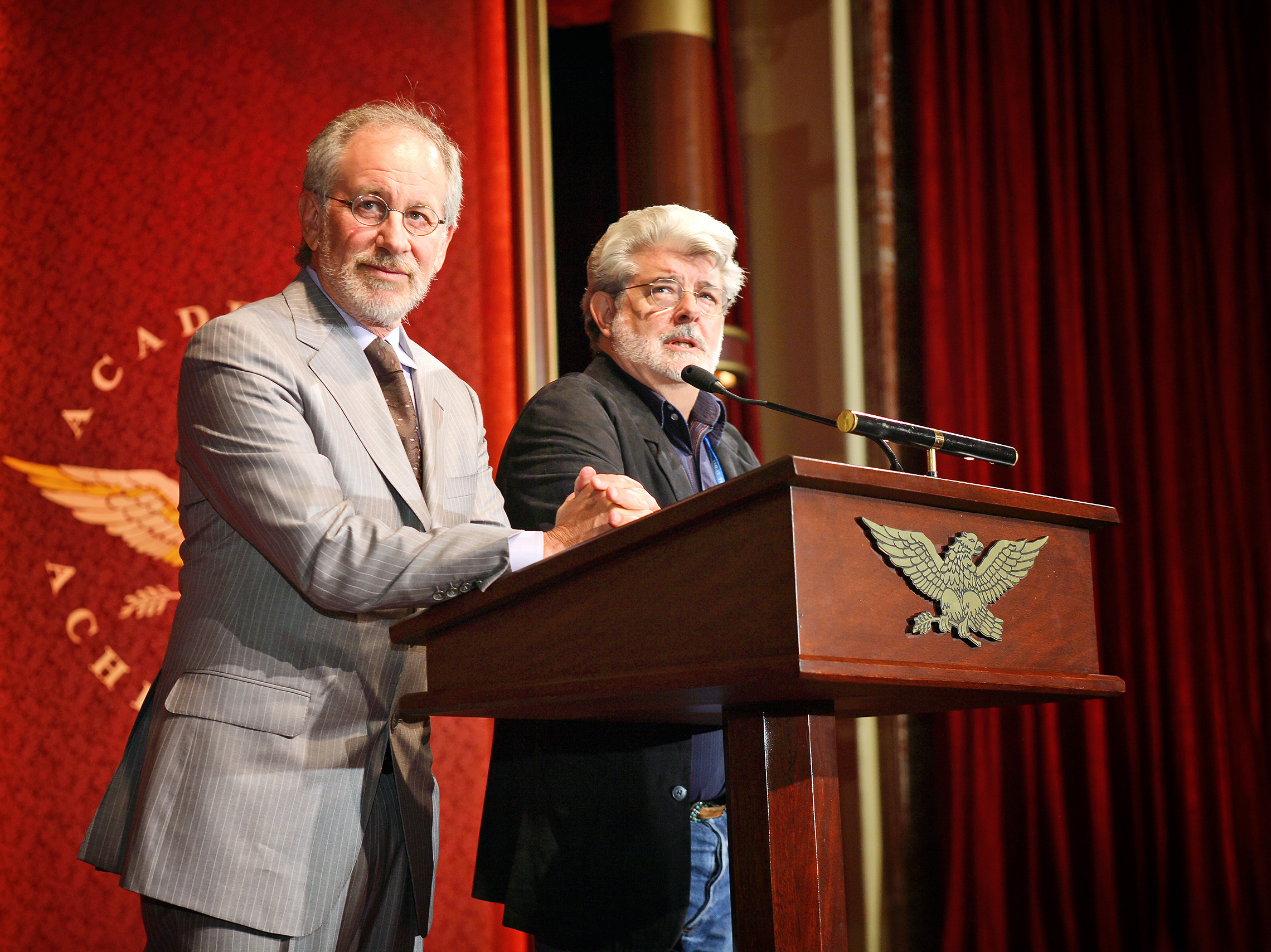
This year’s Summit was hosted by legendary filmmakers George Lucas and Steven Spielberg. The Chairman of the Summit was Catherine B. Reynolds, Chairman and CEO of The Catherine B. Reynolds Foundation. The Summit was made possible by a generous grant from The Catherine B. Reynolds Foundation.
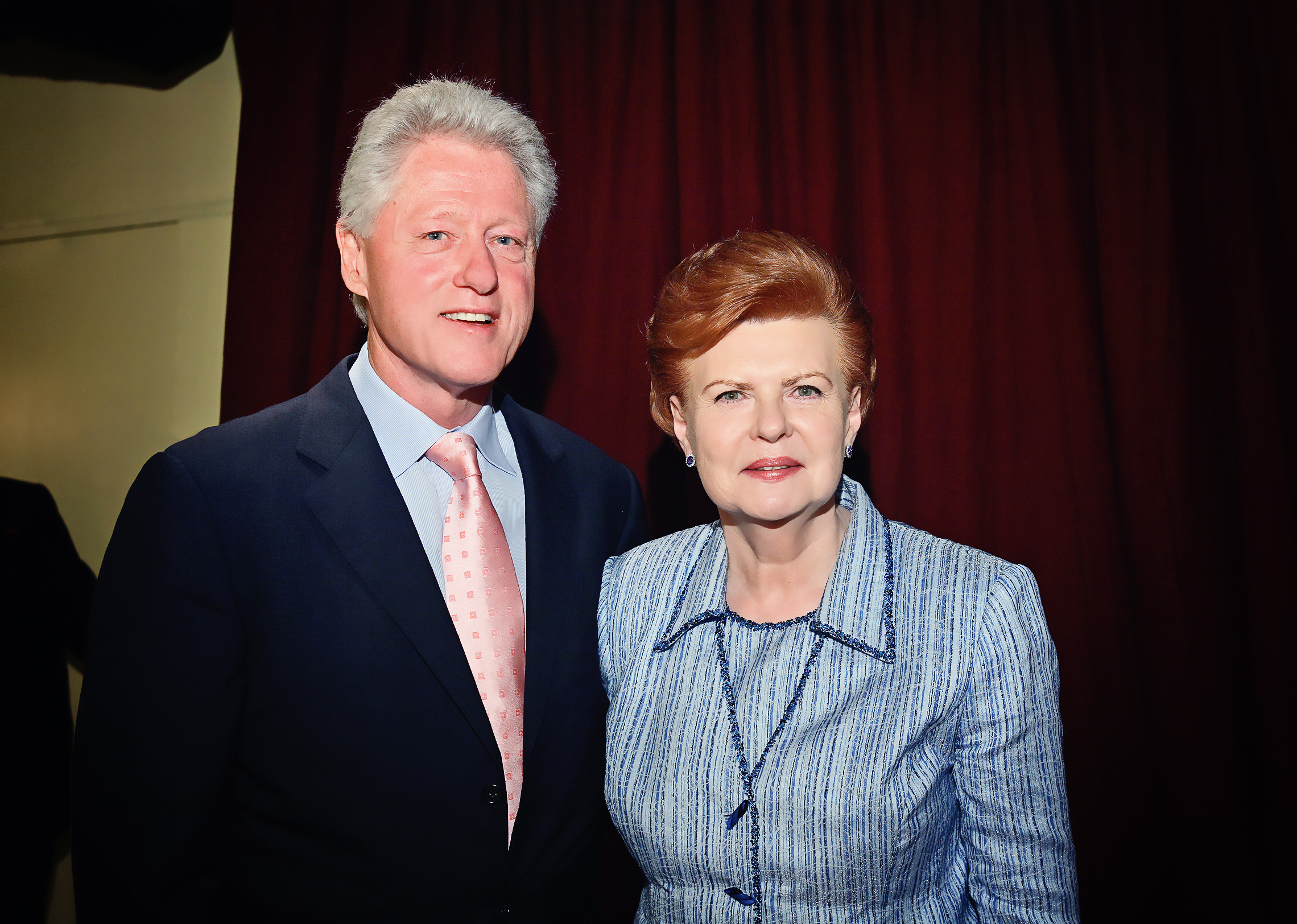
Fifty past recipients of the Academy’s Golden Plate Award and 30 new honorees attended the Summit. International statesmen among the Academy members in attendance included: the 42nd President of the United States, William J. Clinton; Crown Prince Salman of Bahrain; President Vaira Vike-Freiberga of Latvia; President Festus Mogae of Botswana; and the Honorable Ehud Barak, former Prime Minister of Israel. They were joined by two former Commanders of NATO, General Wesley Clark and General Joseph Ralston, and two recipients of the Nobel Peace Prize: Archbishop Desmond Tutu and Dr. Mohamed ElBaradei, Director General of the United Nations International Atomic Energy Agency.
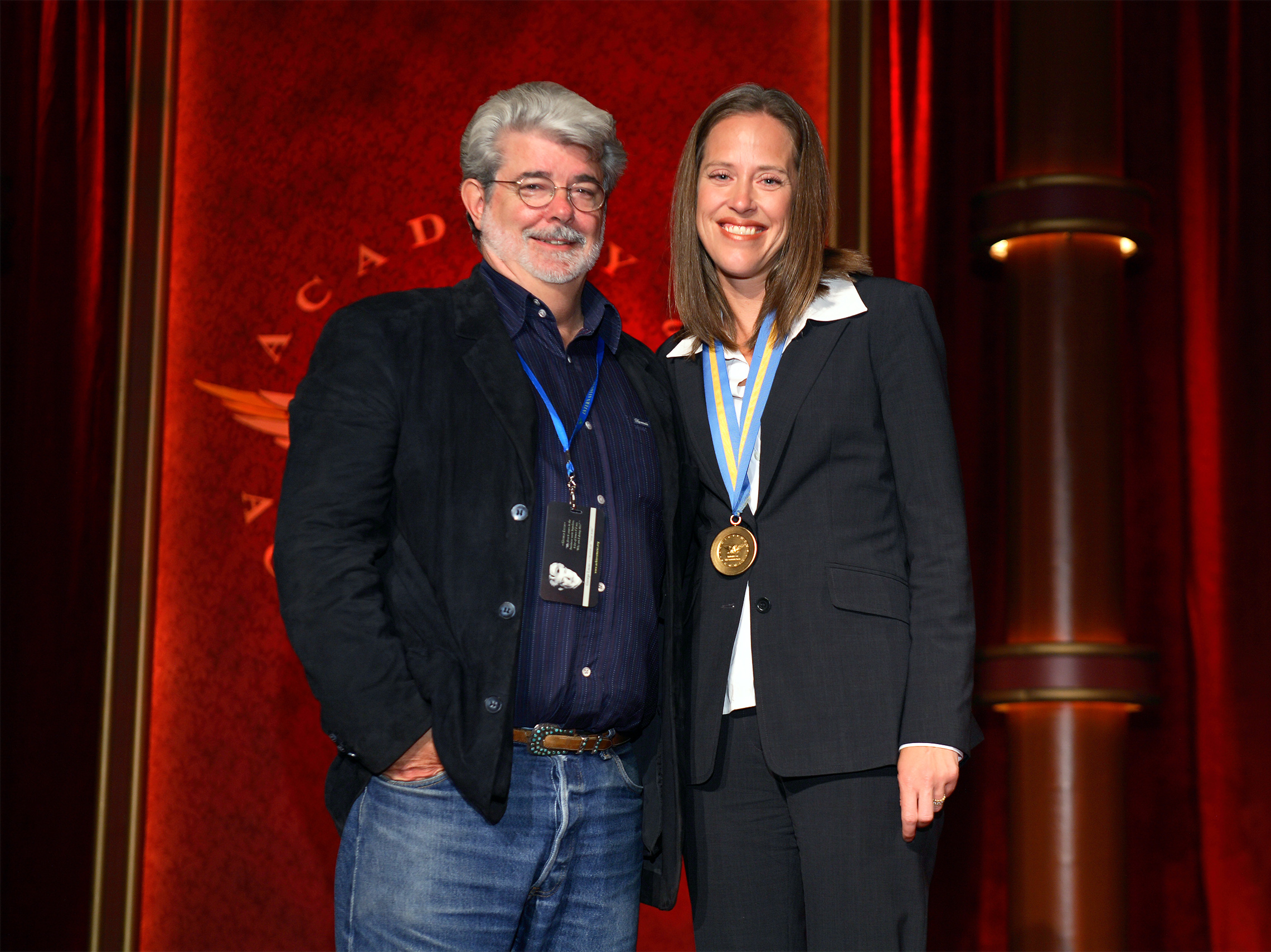
Academy members from all three branches of the United States government included Supreme Court Justice Anthony M. Kennedy, Director of National Intelligence John D. Negroponte and three members of President George W. Bush’s cabinet: Transportation Secretary Norman Mineta, Education Secretary Margaret Spellings and Housing and Urban Development Secretary Alphonso Jackson. Members of Congress attending the Summit included Edward Markey, Jane Harman and the Minority Leader of the House of Representatives, Nancy Pelosi. Other distinguished public servants included: the former leader of the Senate Democrats, the Honorable Tom Daschle; the Mayor of Chicago, Richard M. Daley; and the Mayor of Los Angeles, Antonio Villaraigosa.
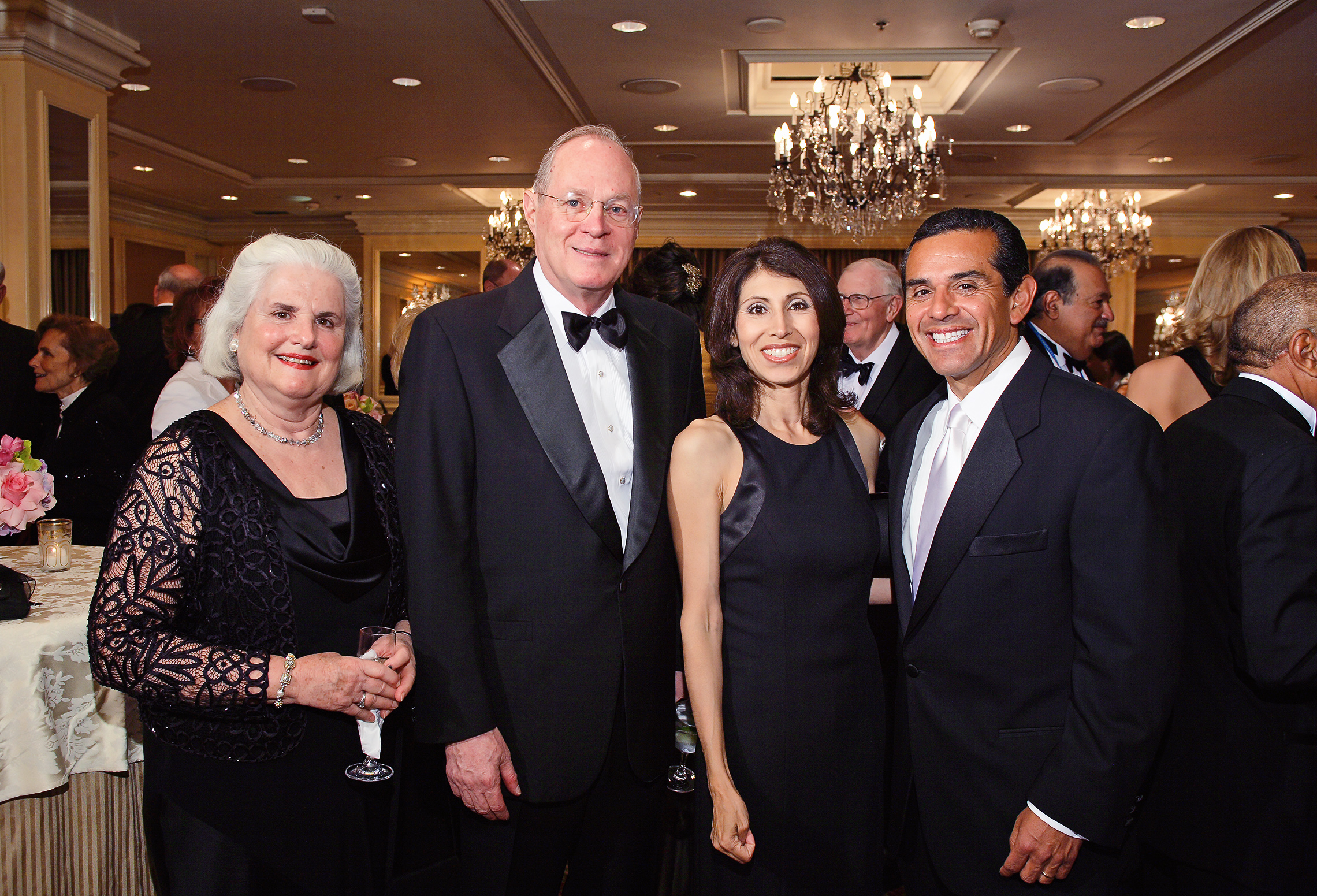
In addition to Mr. Lucas and Mr. Spielberg, distinguished representatives of the motion picture industry included directors Peter Jackson and Chris Columbus, as well as screen stars Samuel L. Jackson, Robin Williams, Sally Field, Olivia de Havilland and Dame Julie Andrews. Old and new members of the Academy from the world of music included Quincy Jones, Dame Kiri Te Kanawa, Sheryl Crow, Trisha Yearwood, Sonny Rollins and John Williams. Among the literary contingent were authors Gore Vidal, Joan Didion, Carlos Fuentes and Arthur Golden, and Pulitzer Prize winners A. Scott Berg and N. Scott Momaday. Nobel Prize-winning scientists appearing at the Summit included Dr. Michael Brown, Dr. Robert H. Grubbs, Dr. John Hall and Dr. A. Michael Spence. Sports legends Kareem Abdul-Jabbar, Dorothy Hamill and Sir Roger Bannister returned to the Summit to present the Academy’s honors to new inductees. Business leaders at the Summit included Telmex Chairman Carlos Slim Helú, Research in Motion Chairman James Balsillie, Home Depot founder Bernard Marcus, The Carlyle Group founder David Rubenstein and JPMorgan Chase CEO Jamie Dimon.
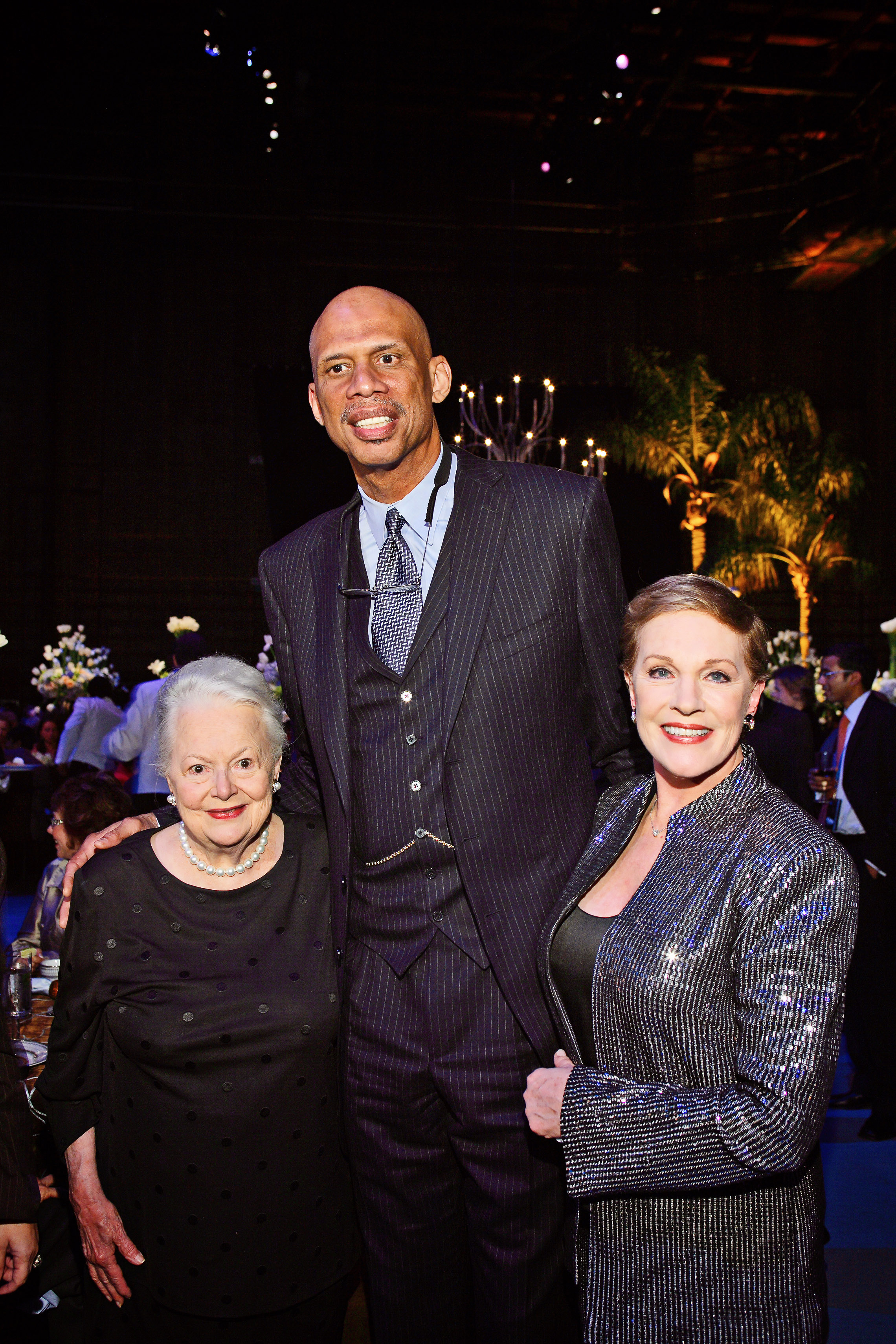
Academy members, honorees and student delegates stayed at the glamorous Regent Beverly Wilshire Hotel at one of America’s most famous intersections, Wilshire Blvd. and Rodeo Drive, in the heart of the City of Beverly Hills. The excitement began on the first evening, as Academy members and student delegates were thrilled to be welcomed by the two most successful filmmakers of all time, George Lucas and Steven Spielberg. The first award of the Summit was presented to Wendy Kopp, founder and President of Teach for America. Academy member A. Scott Berg, recipient of the Pulitzer Prize for Biography, recounted the early history of Hollywood, and how the immigrant founders of the motion picture industry fulfilled their own American Dreams and became the leading purveyors of that dream to all the world.
The first morning session of the 2006 Summit focused on the frontiers of medicine and scientific research. Pioneering neurosurgeon Dr. Benjamin S. Carson recounted this own odyssey from the ghetto to the operating room. Dr. Hans Keirstead made a compelling multimedia presentation of his revolutionary work employing human stem cells in the treatment of spinal cord injury and multiple sclerosis. Dr. Michael Brown, a recipient of the Nobel Prize in Medicine, discussed his pioneering work in the study of cholesterol and its role in cardiovascular disease, the leading cause of death and disability in the Western World.
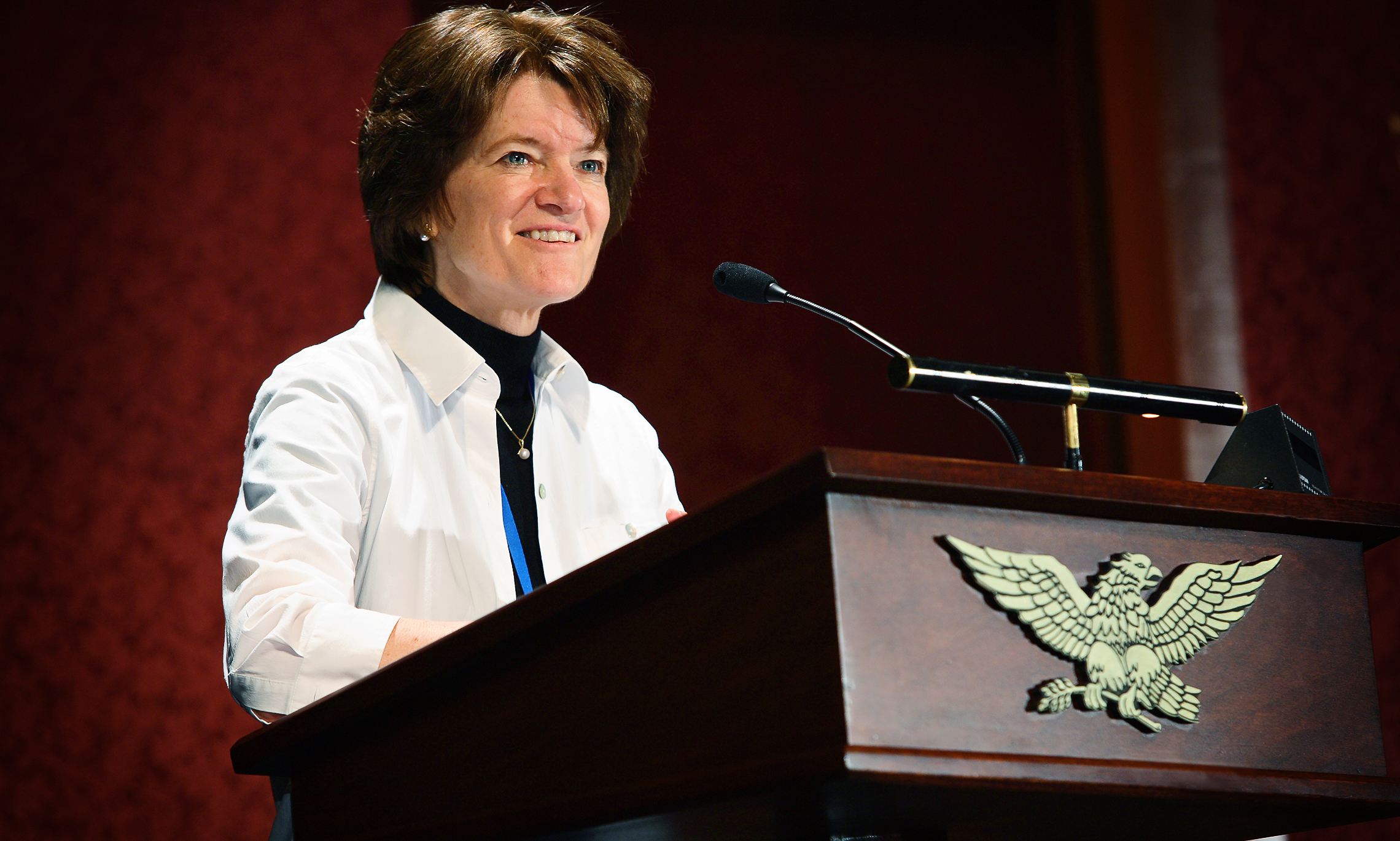
Dr. Miguel Nicolelis of Duke University presented his historic research at the cusp of neuroscience and robotics, including a revolutionary breakthrough in the development of neuroprosthetic devices to assist the disabled and paralyzed. Dr. Spencer Wells, director of the Genographic Project, discussed this unprecedented international undertaking, employing molecular genetics to retrace the migration paths of mankind from its very beginnings. He even shared his findings tracing the ancestors of Summit Chairman Catherine B. Reynolds and Academy member Dr. Benjamin S. Carson.
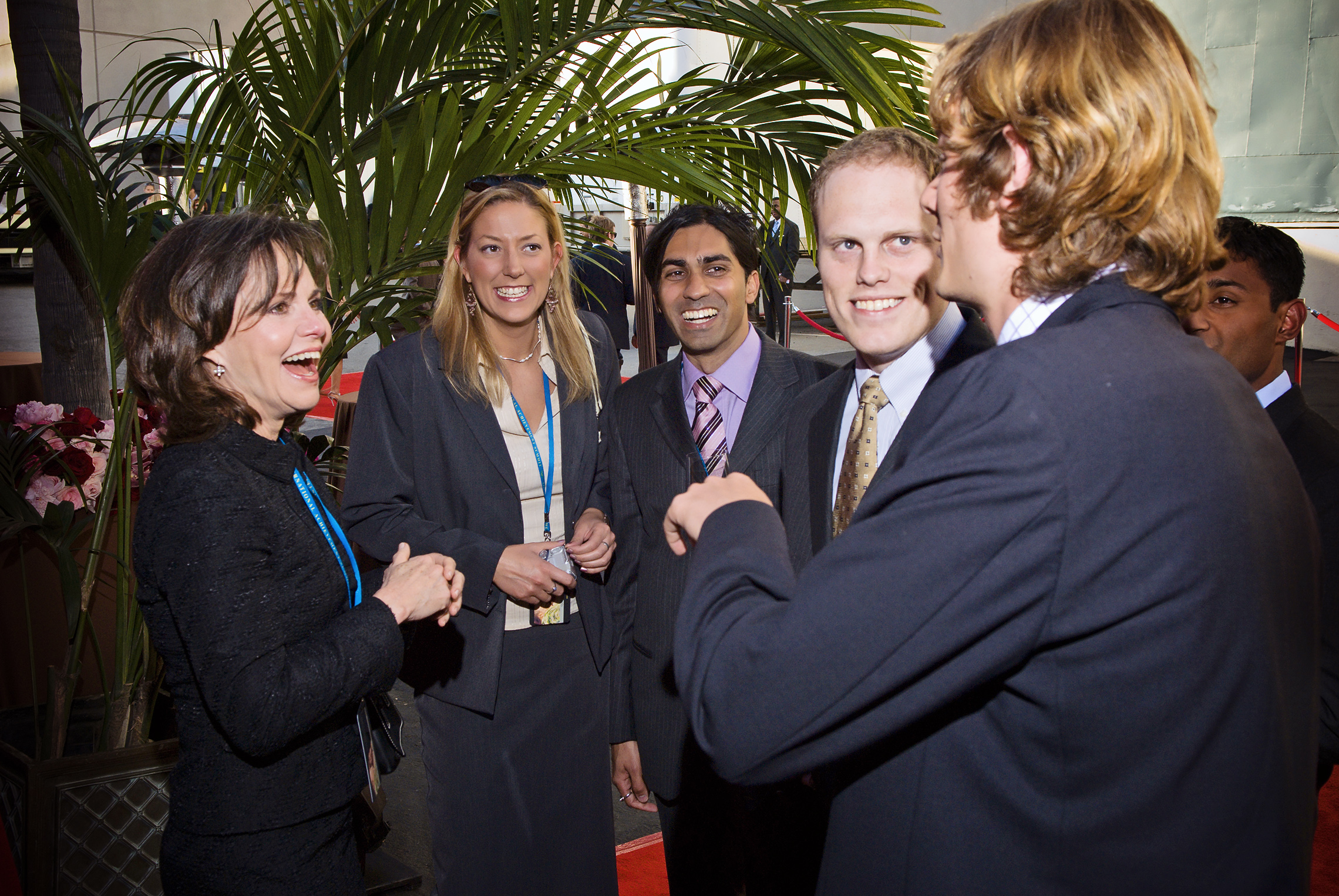
The first panel discussion of the Summit explored the connections and conflict between Science and Faith. Television journalist Kathleen Matthews moderated the discussion. Dr. Francis Collins, Director of the National Human Genome project, and Dr. Benjamin S. Carson presented their views as scientists whose work is informed and inspired by their religious faith. Evolutionary biologist Dr. Richard Dawkins and philosopher Dr. Daniel Dennett argued that religious belief is not supported by evidence or scientific method. Their extremely animated discussion of their core beliefs can be heard in the Audio Recordings area of the Academy website.
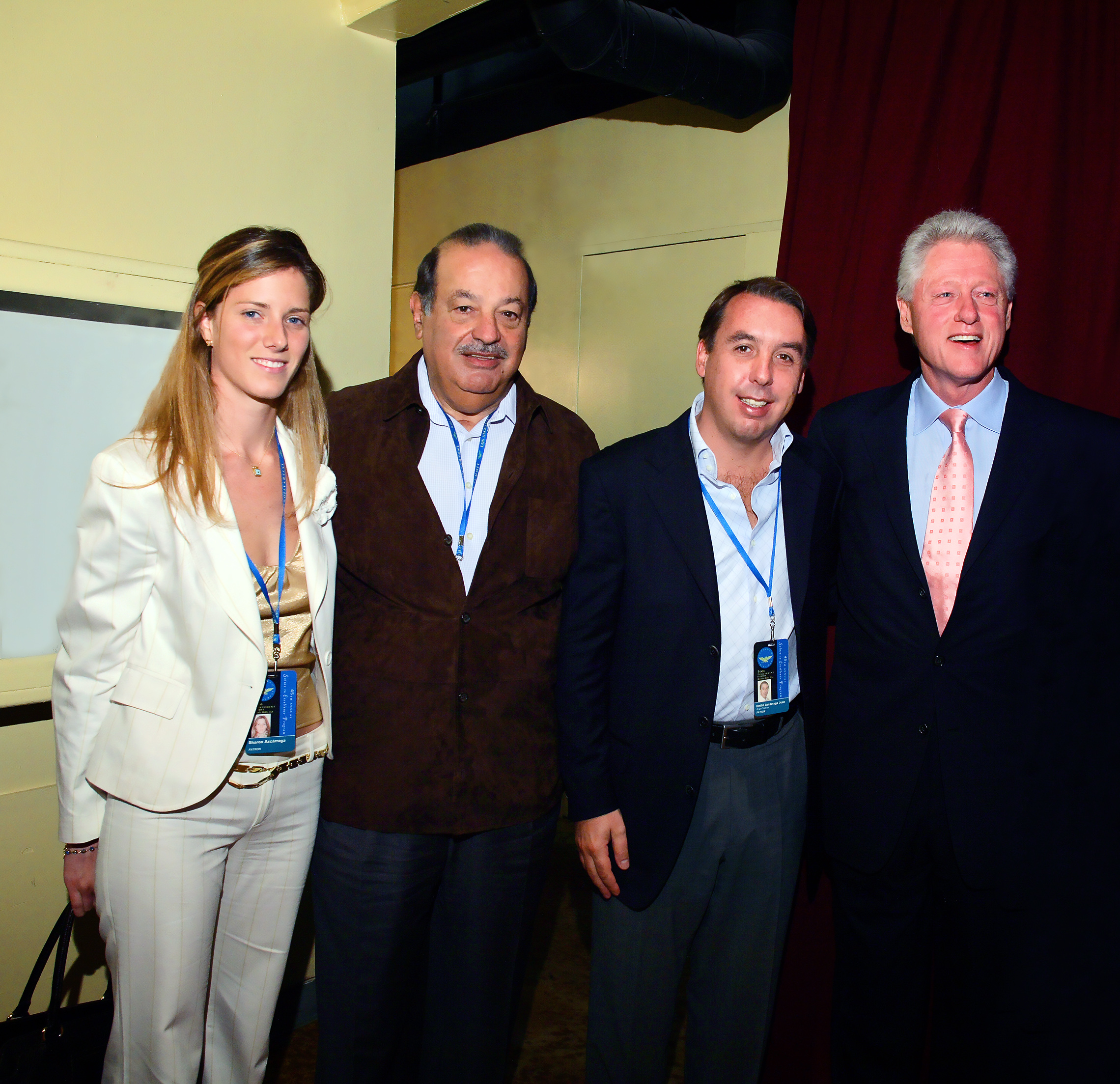
Another distinguished scientist who spoke during the Summit was Dr. Robert H. Grubbs, recipient of the 2005 Nobel Prize in Chemistry, who discussed his breakthrough in chemical metathesis, the discovery of the so-called “Grubbs catalyst,” which promises the production of new medicines and new materials for industry, while reducing the hazards of chemical waste.
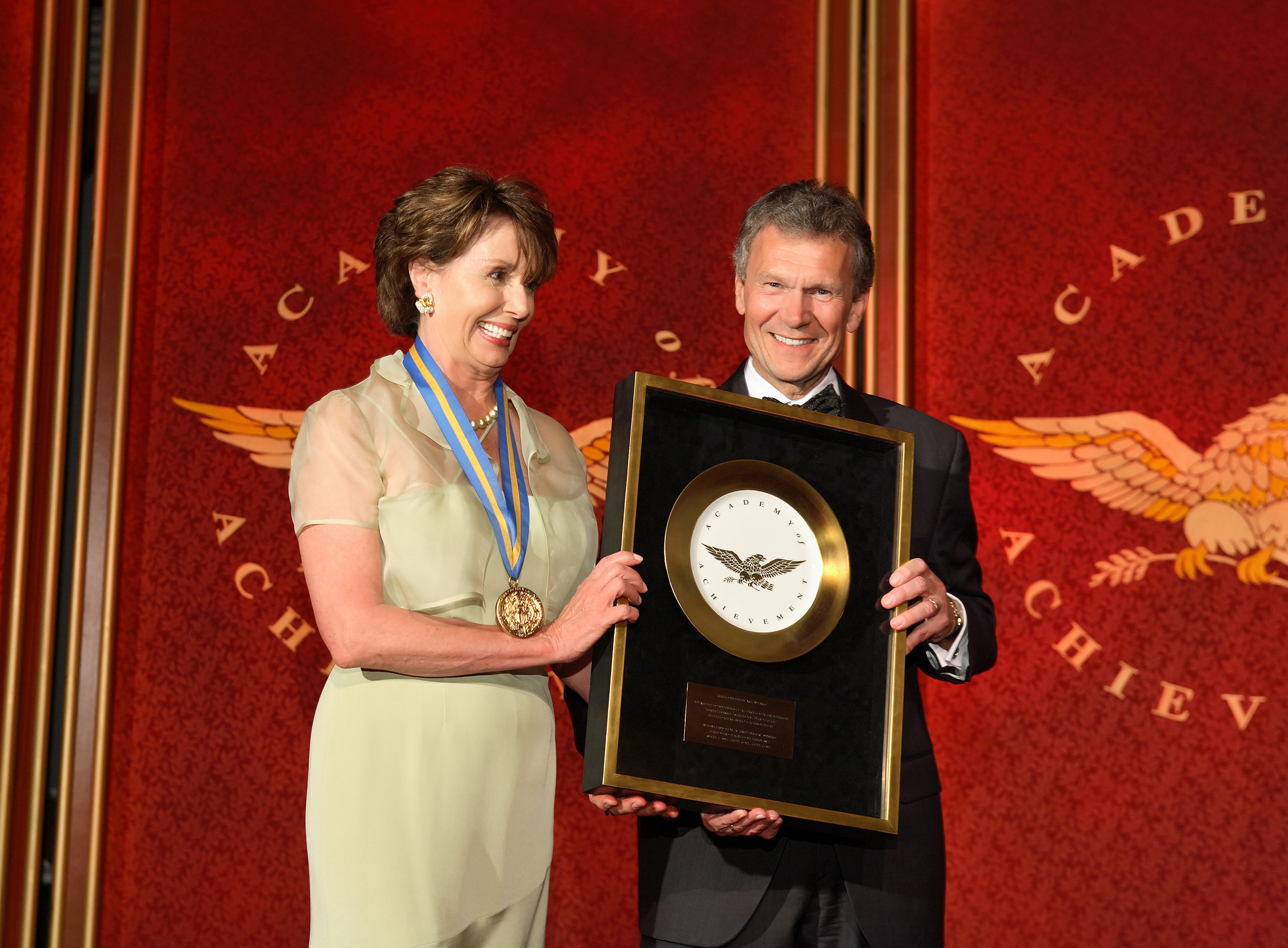
The first morning’s session ended with a presentation by the 42nd President of the United States, William J. Clinton. He spoke to the need for the nations of the world to pursue a course of international “integration” rather than “interdependence” in the coming century. Immediately following his address, the President sat down for a long question-and-answer session with Academy students, typifying the level of candid discourse that prevailed throughout the International Achievement Summit.
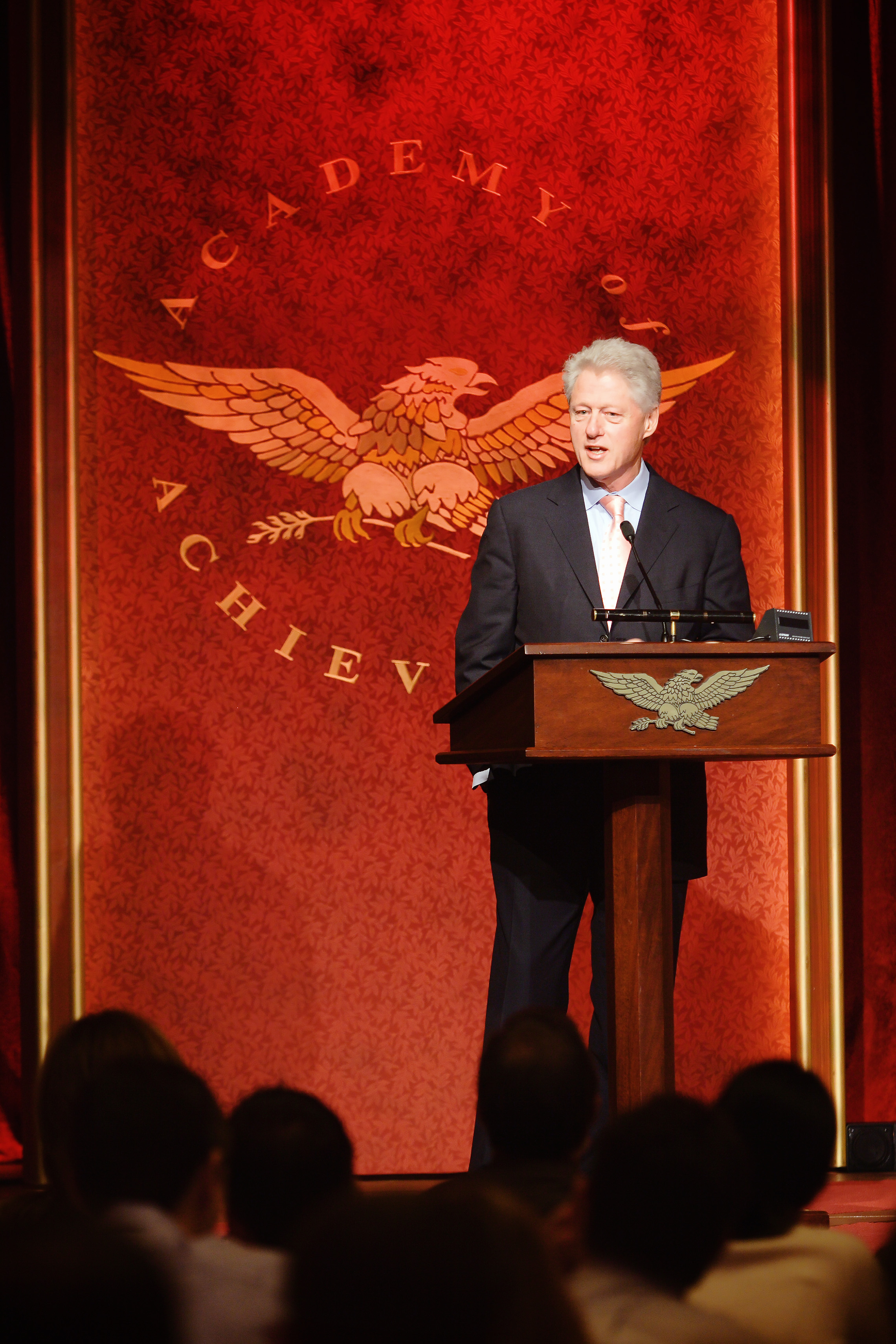
The exchange of ideas continued during the lunch break, as stem cell pioneer Dr. James D. Thomson met with the Academy’s medical students and biologists for a further exploration of many of the scientific and ethical questions raised in the morning’s session. Much of the afternoon session focused on the efforts of private individuals and public institutions to solve the world’s most intractable problems. Inventor Dean Kamen recounted his efforts to provide low-cost water purification systems to developing societies. Consumer advocate Ralph Nader spoke at length on the need for reform of the American political system to prevent the abuse of power by special interests. Undersea explorer Dr. Sylvia Earle discussed the damage mankind has seen done to our natural environment, while Congressman Ed Markey discussed his own battle to protect the environment through the political process.
In a change of pace, Julie Taymor, the award-winning Broadway director of The Lion King discussed her work in theater, film and opera. Although her world premiere production of the opera Grendel was in its final week of rehearsal at the Los Angeles Opera during the Summit, Miss Taymor graciously took time away from the monumental project to share the story of her own creative development with the Academy’s student delegates.
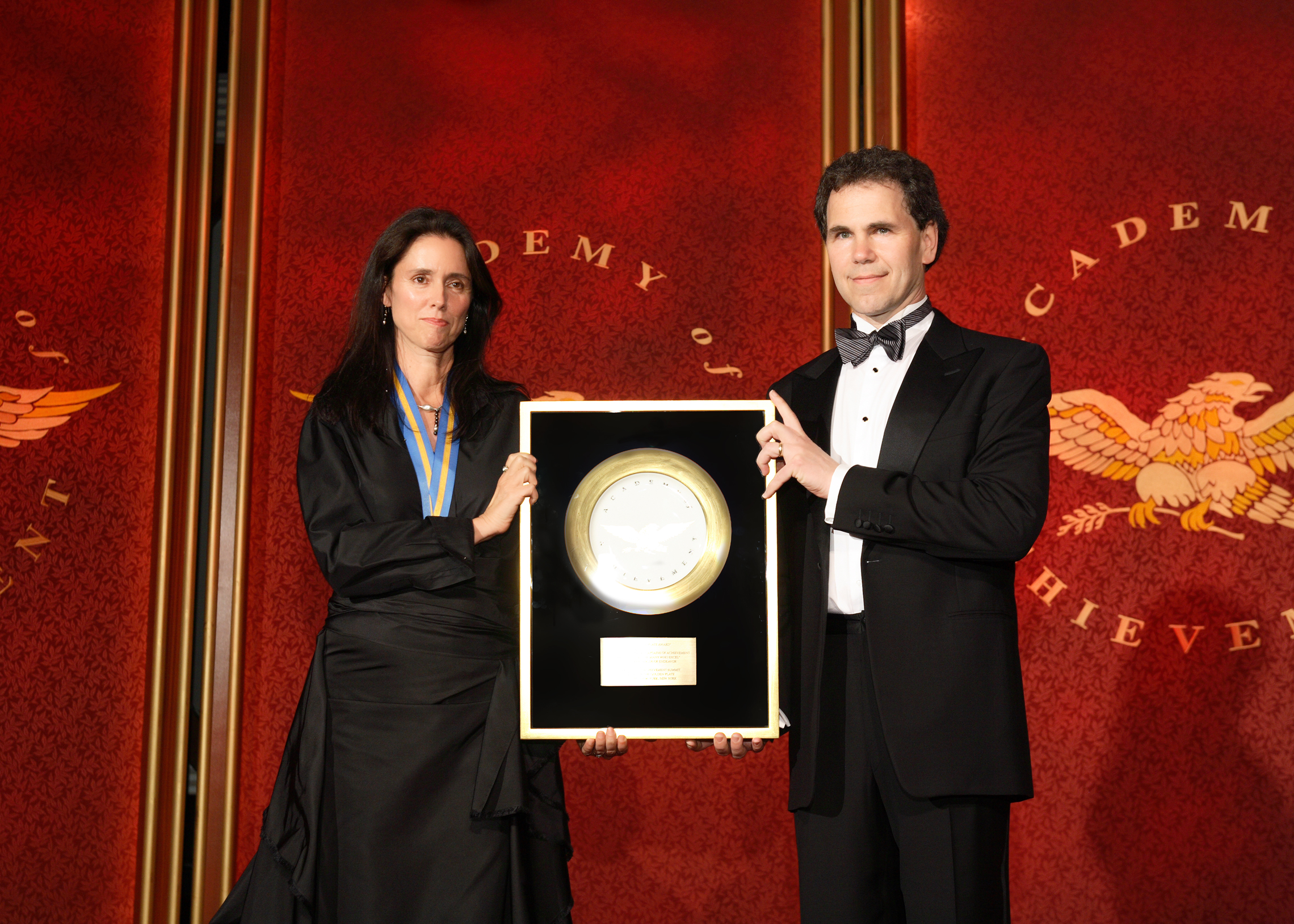
Mexico’s greatest living novelist, Carlos Fuentes, addressed the political role of the author in Latin America and the rest of the world. Chicago Mayor Richard M. Daley sat down for a discussion of “Public-Private Partnerships” with JPMorgan Chase CEO Jamie Dimon. Their stimulating discussion of the fruitful collaboration of the public and private sectors was moderated by an old friend of the Academy, MSNBC Hardball host Chris Matthews.
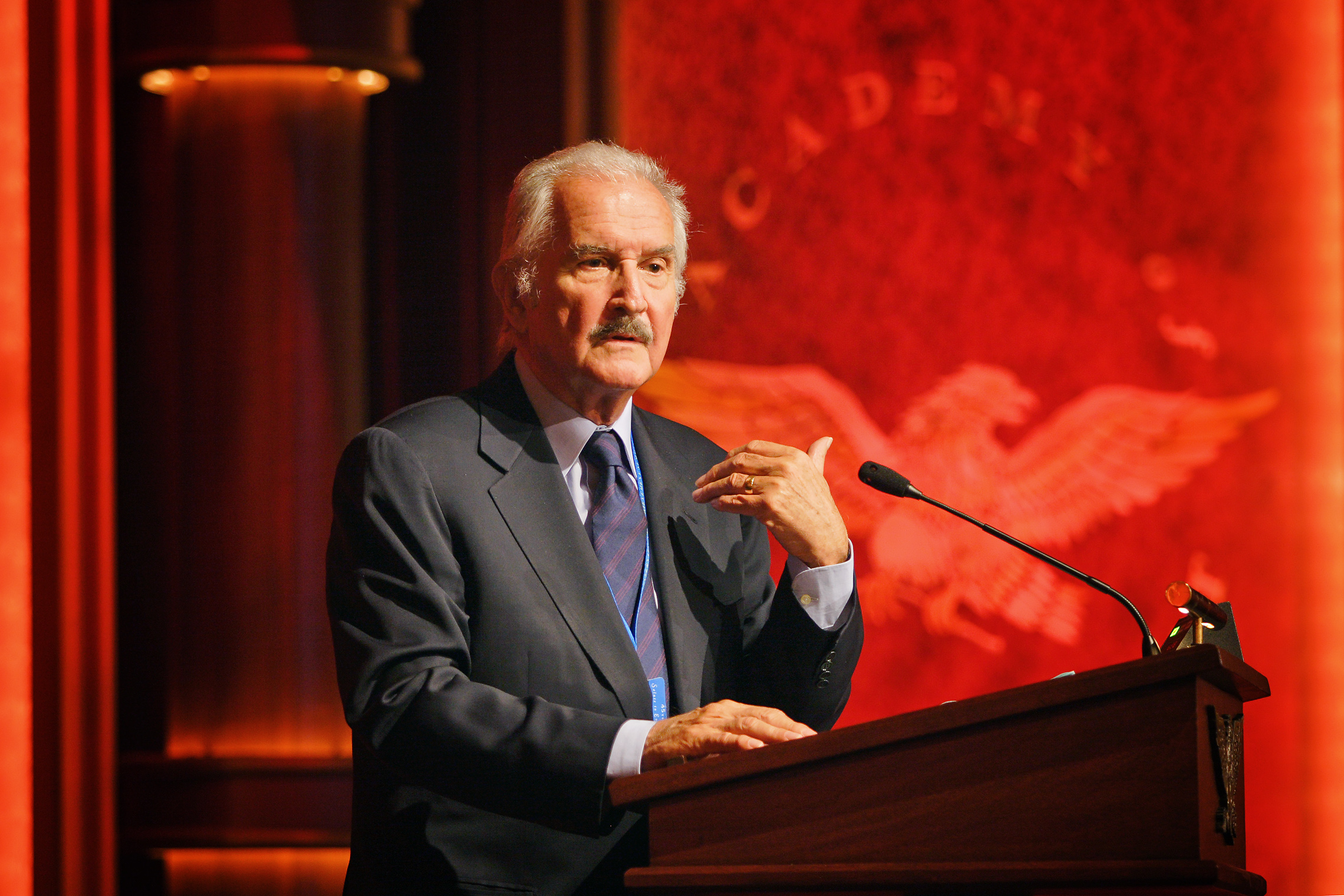
Supreme Court Justice Anthony M. Kennedy spoke on the evolving concept of international justice and then joined Chris Matthews and film directors George Lucas, Peter Jackson and Chris Columbus for a discussion of “The Meaning of Movies.” Justice Kennedy, an impressively learned and perceptive student of American and world cinema, made a forceful point concerning the power of the motion picture to address serious moral questions, apart from mere entertainment. However, he recused himself from discussion of issues raised by several recent films, as they concern matters that may soon come before the Supreme Court itself.
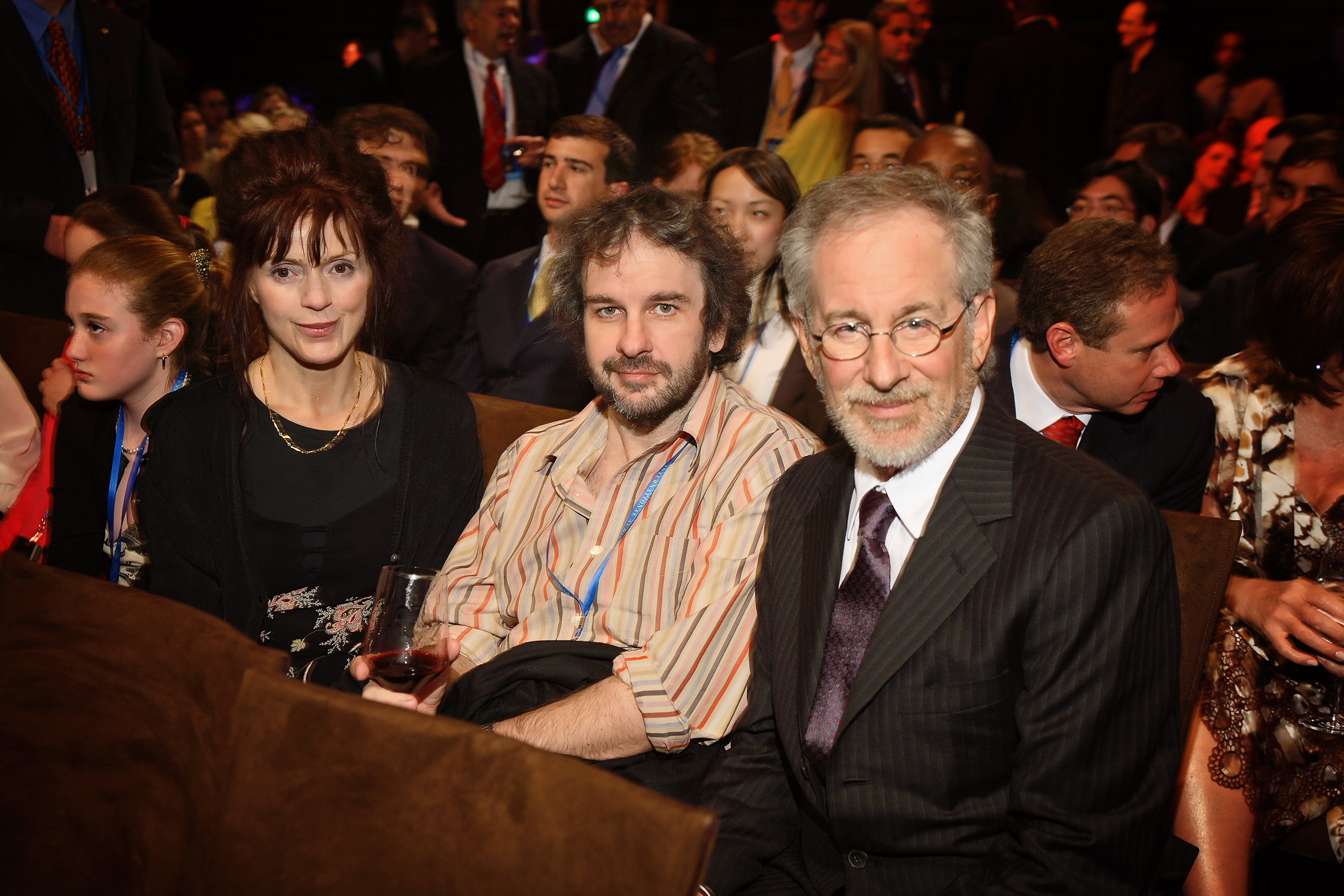
That evening, the assembled Academy members and student delegates traveled to the legendary motion picture studio 20th Century Fox. There, on a massive sound stage where some of the most enduring film classics were created, they enjoyed an unforgettable evening of music and memories with the Los Angeles Philharmonic and a dazzling array of talent from the worlds of music and motion pictures. George Lucas spoke of his early struggles as a filmmaker, and of the meaning of a purposeful, creative life, transcending the well-publicized blessings of wealth and superficial celebrity. The beloved star of The Sound of Music, Dame Julie Andrews, shared her memories of shooting that timeless classic right there at 20th Century Fox Studios.
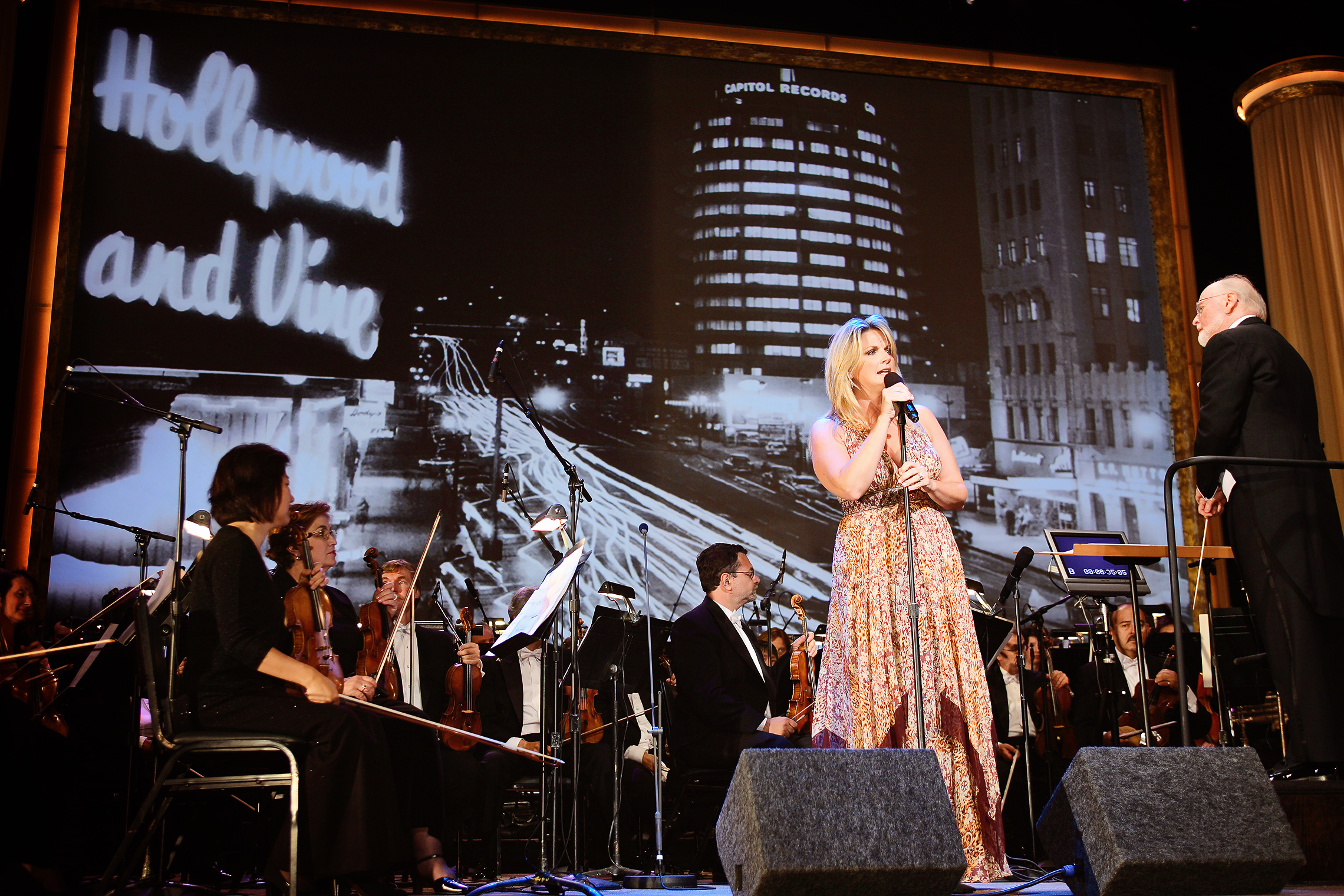
The Oscar-winning composer John Williams led the Los Angeles Philharmonic in a spine-tingling suite of his original music for the films of George Lucas and Steven Spielberg. Breathtaking images from Jaws, Star Wars, Close Encounters of the Third Kind, Raiders of the Lost Ark and ET played across an immense motion picture screen as the audience thrilled to the sounds of Williams’s stirring music brought to life with the full power of a live symphony orchestra. Steven Spielberg then took the stage and held the audience rapt with a surprisingly revealing account of the origins of his lifelong love affair with the moving picture.
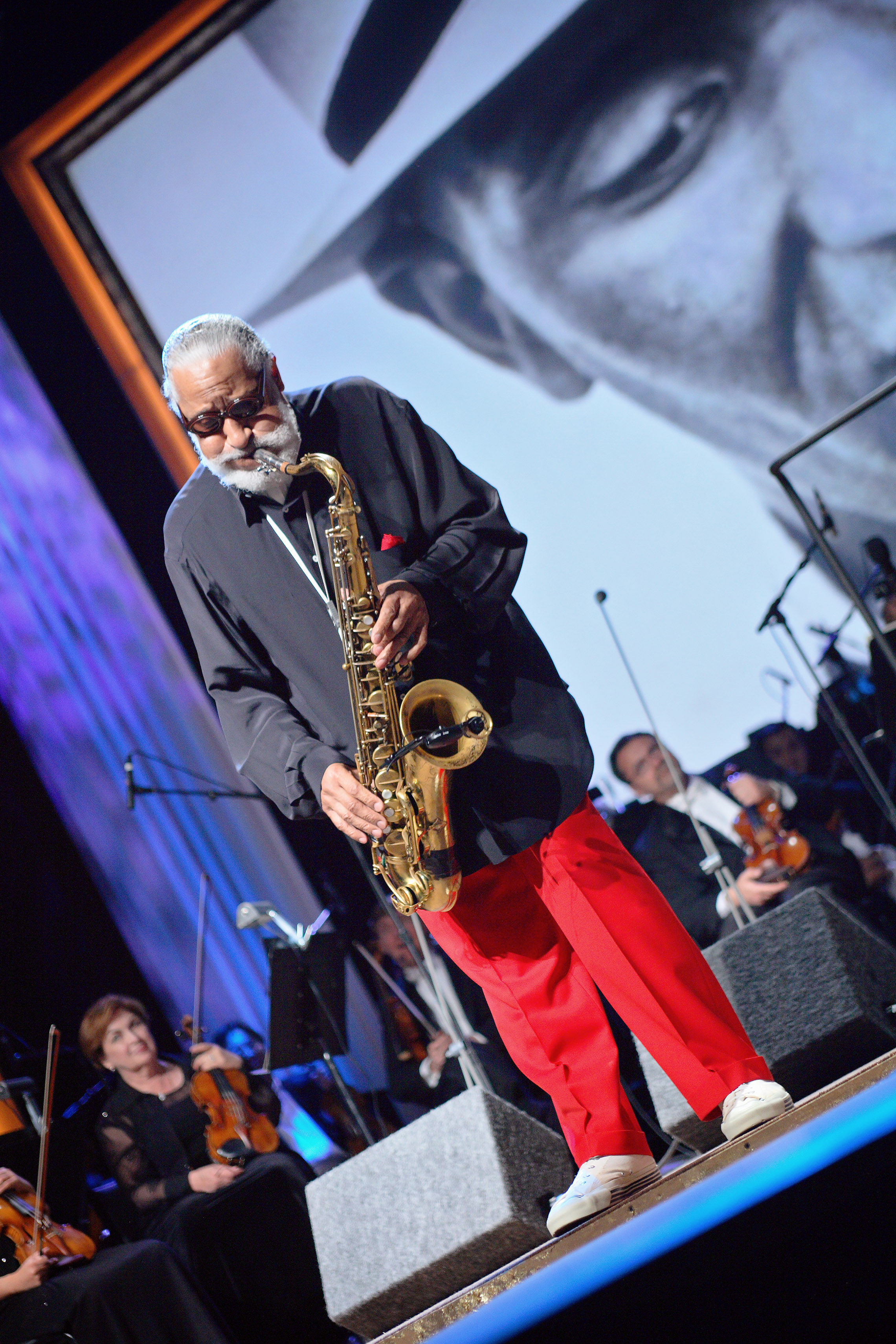
One of America’s favorite singers, Academy member Trisha Yearwood, sang “How Do I Live,” from the film ConAir, accompanied by John Williams and the L.A. Philharmonic. The Philharmonic also accompanied two spectacularly talented student delegates of the Academy, Sergei Semishkur and Larissa Yudina, young opera singers from the conservatory of the Mariinsky Theater in St. Petersburg, Russia, who sang a stirring duet from Rigoletto.
Legendary jazz saxophonist Sonny Rollins performed an awe-inspiring solo improvisation on American themes. Mr. Rollins was then inducted into the Academy by Basketball Hall of Fame great Kareem Abdul-Jabbar, who spoke of the inspiration he had derived as a young athlete from hearing Sonny Rollins perform. After the awards ceremony, Sonny Rollins was joined onstage by the phenomenal young tap dance master Savion Glover for a spectacular joint improvisation. Rollins and Glover demonstrated an almost telepathic degree of musical communication, astonishing the audience with their inexhaustible rhythmic invention.
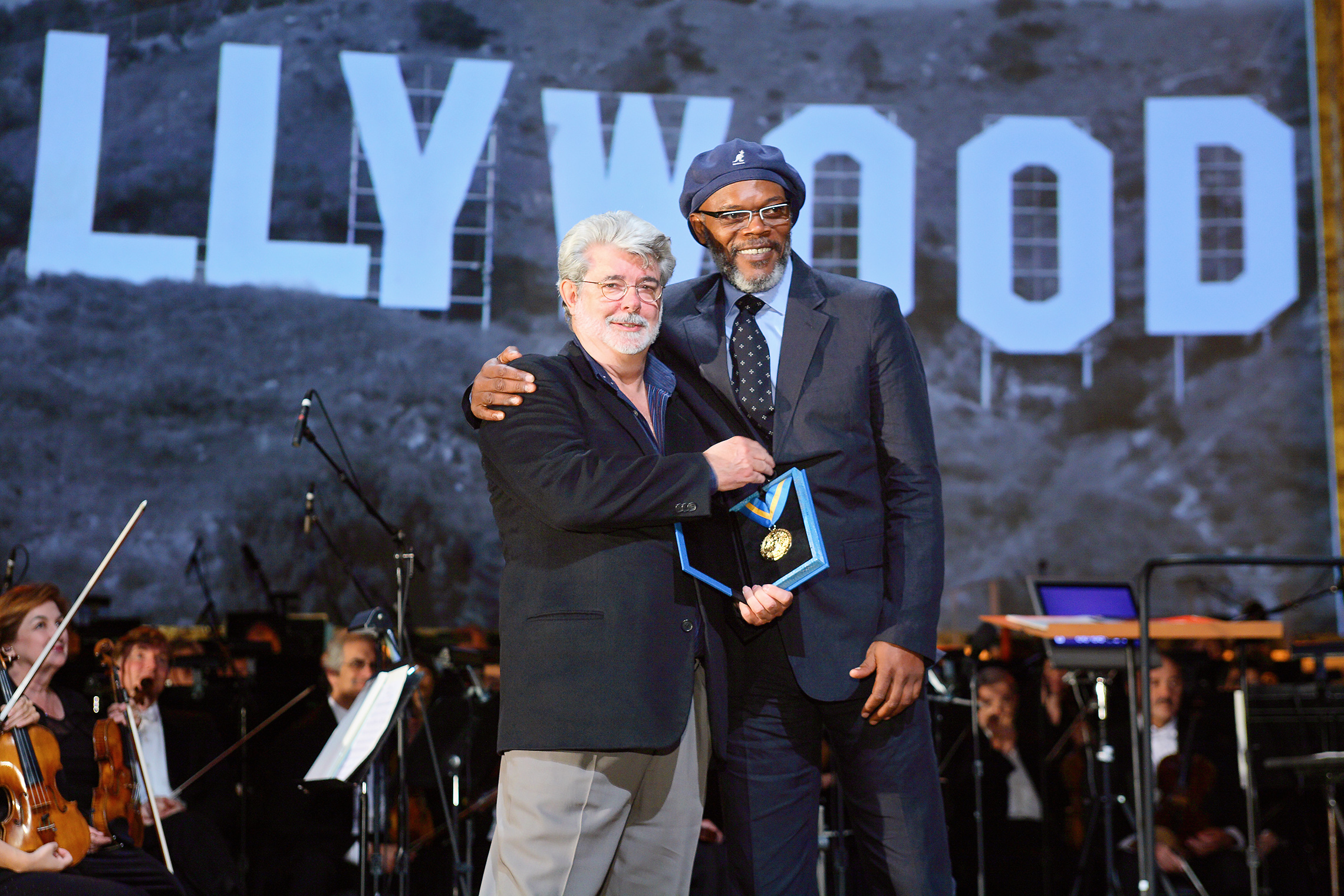
One of the living legends of Hollywood, two-time Oscar winner Olivia de Havilland, graciously accepted a heartfelt ovation from the entire assembly for her lifetime of artistic accomplishment and personal integrity. A favorite of contemporary audiences, the world’s top-grossing film star, Samuel L. Jackson, accepted the second award of the evening.
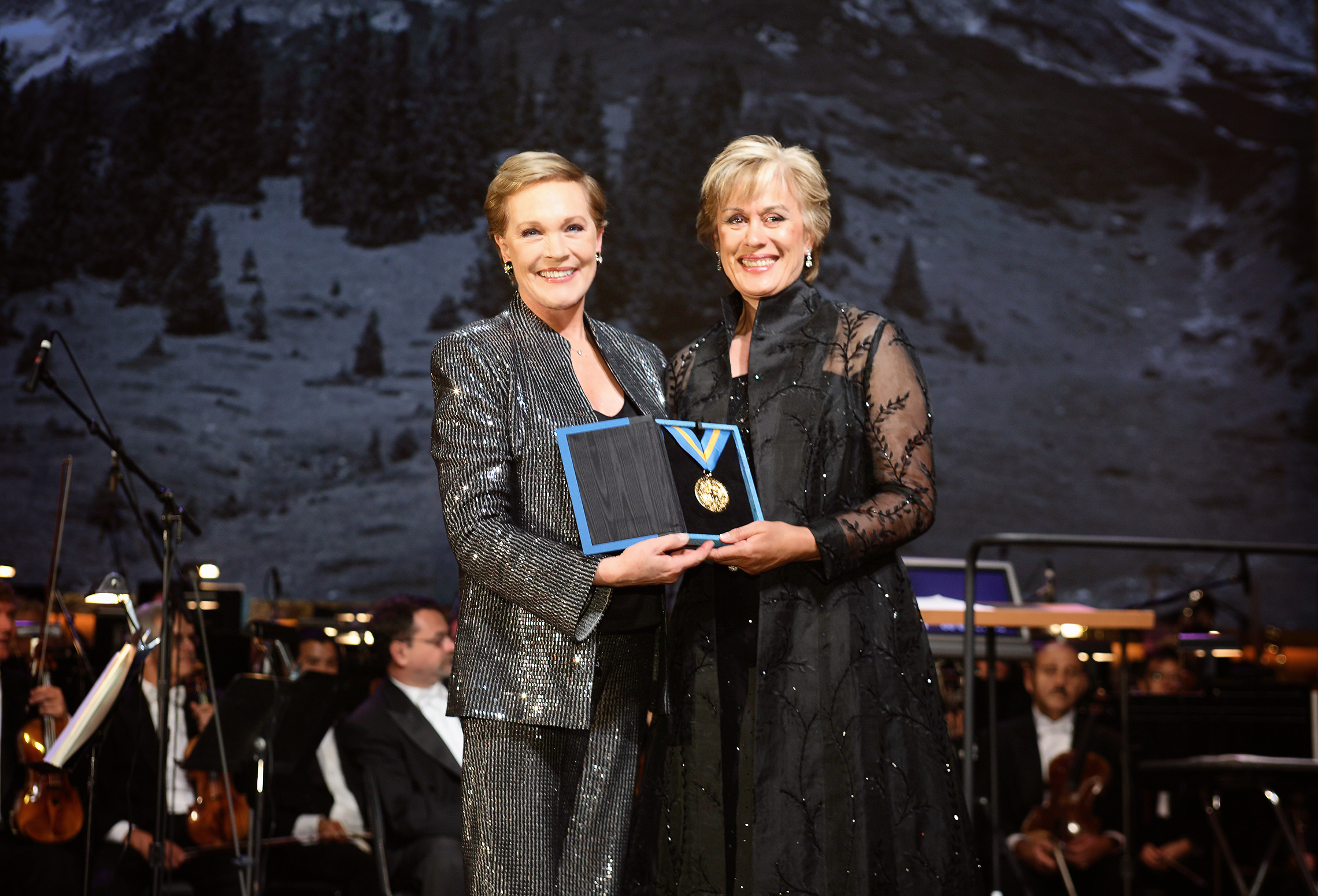
A legendary star of the world of opera, Dame Kiri Te Kanawa, accompanied by the Los Angeles Philharmonic, thrilled the crowd with her soaring renditions of Ave Maria, O mio babbino caro, and “Climb Every Mountain.” In an inspiring conclusion to an evening of matchless musical artistry, Te Kanawa was inducted into the Academy by her fellow Dame Commander of the British Empire, Julie Andrews.
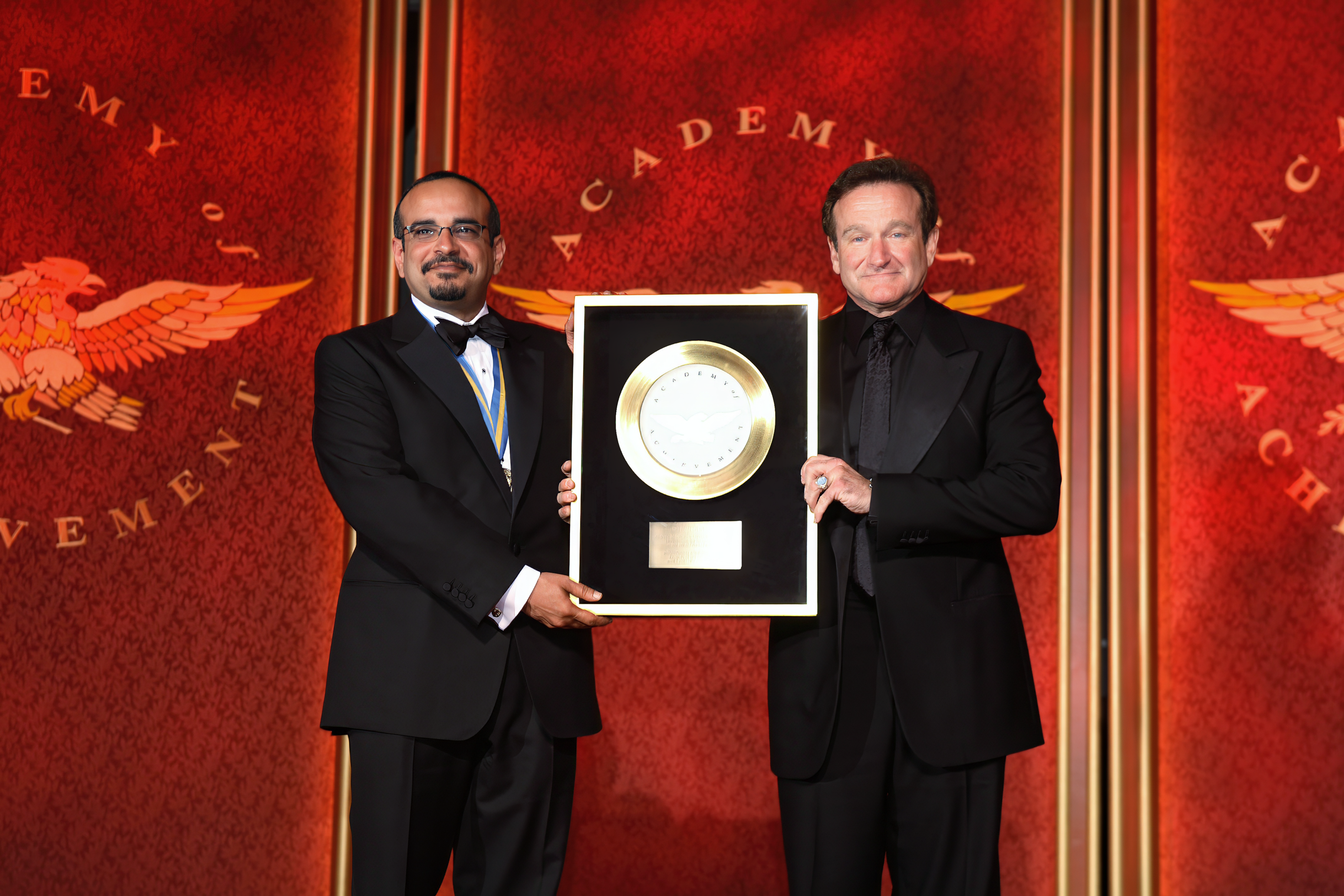
The entire assembly then took their seats for an elegant dinner, served in the vast sound stage, transformed for the night into an elegant banquet hall through the magic of Hollywood. Inspiring images of Academy honorees from the last 45 years played on the giant screen while student delegates and Academy members enjoyed a sumptuous meal and shared their thoughts and impressions of an incredibly full day.
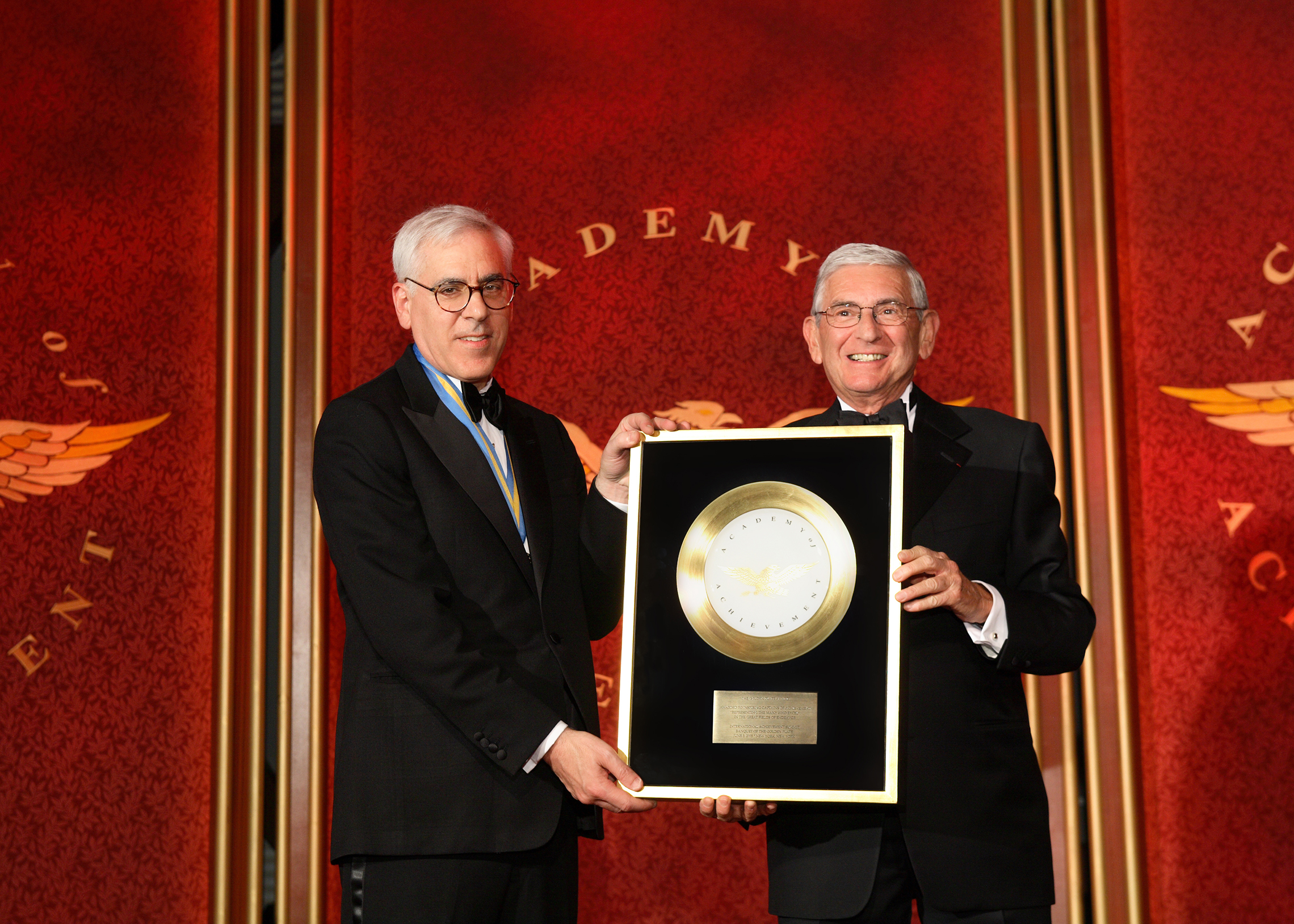
The following morning’s session, back at the Beverly Wilshire, brought even more intense concentration on world affairs. Chris Matthews led a discussion of the challenges of improving the quality of life for the people of the Third World. Participants included: the President of Botswana, His Excellency Festus Mogae; UNICEF Director Ann Veneman; inventor Dean Kamen; and former Assistant Surgeon General Dr. Susan Blumenthal. Students asked deeply probing questions of the panelists, and all present were impressed by the warmth and eloquence of President Mogae, whose country is an island of stability and relative prosperity in Sub-Saharan Africa.
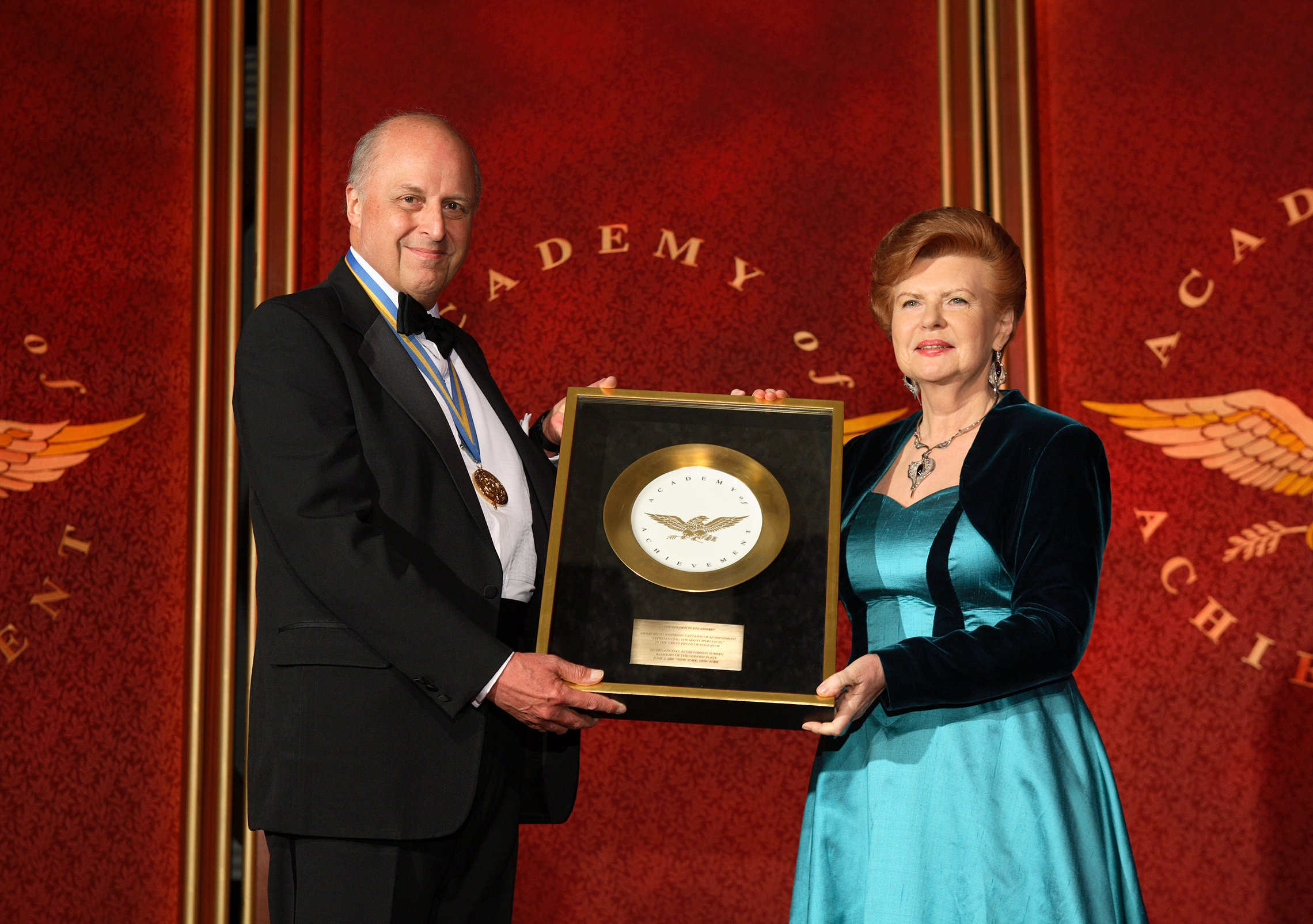
The morning’s audience was also charmed by the youthful Crown Prince of Bahrain, His Royal Highness Prince Salman bin Hamad Al-Khalifa, who surprised many in the audience with his candor in discussing the challenges and opportunities facing his country, a progressive oasis in the troubled Middle East.
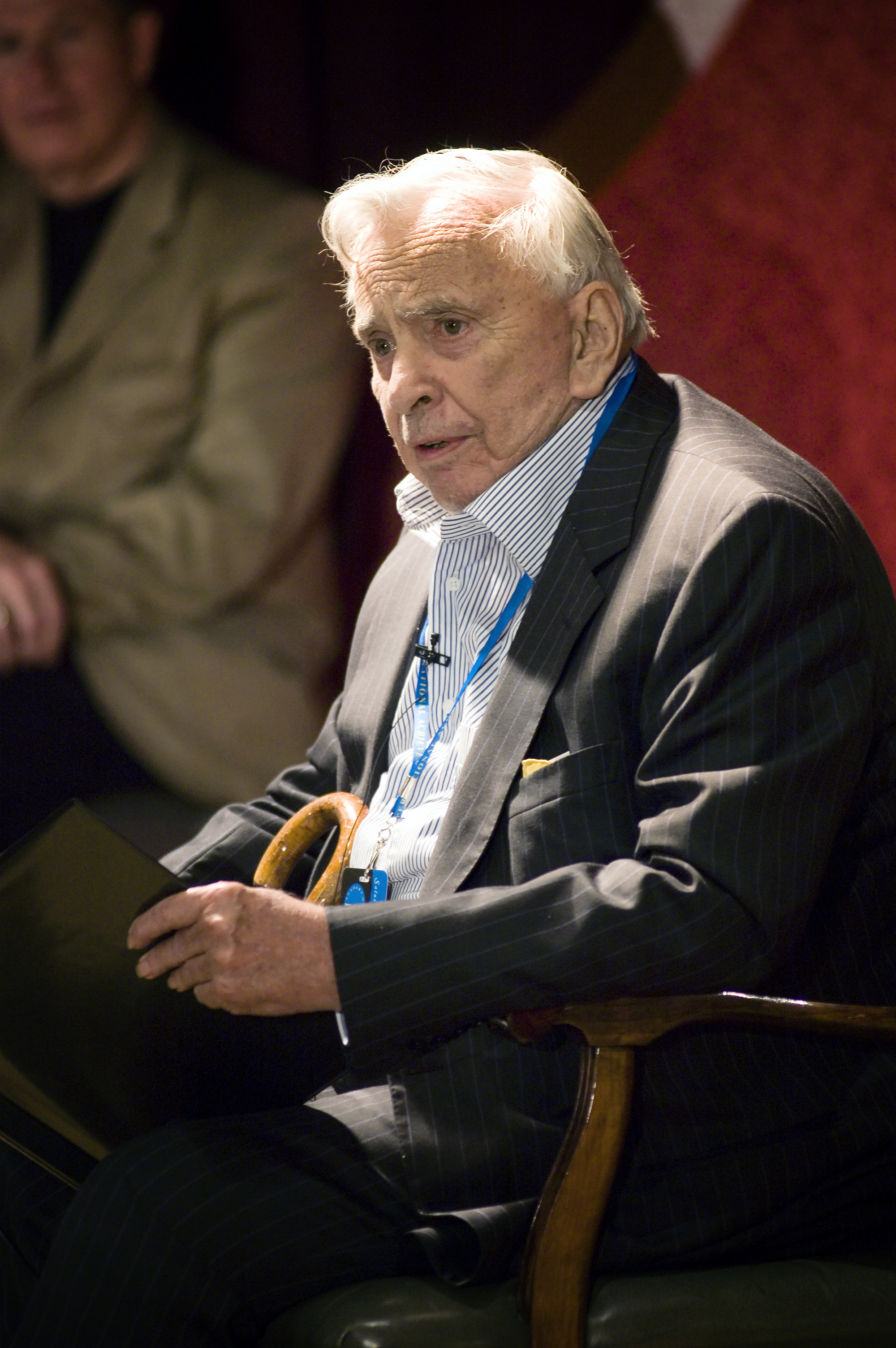
David Rubenstein, founder and Managing Director of The Carlyle Group, gave a surprisingly humorous account of the many setbacks he encountered on his career path, from serving as a 27-year-old advisor to President Jimmy Carter to creating the world’s leading private equity firm, a power in politics and international finance. In one of the most compelling individual presentations of the Summit, the legendary author and social critic Gore Vidal took the stage. Now in his 80s, the great novelist, essayist and sometime political candidate held the audience spellbound with a witty but lacerating assessment of the state of American culture and democracy. For once, the Academy student delegates were too awe-struck to ask questions of a speaker, but they gave him a powerful ovation, and many of his admirers among the student delegates and Academy honorees clustered around him after he left the stage. The focus on public affairs continued as former NATO Commander and presidential candidate General Wesley Clark joined President Vaira Vike-Freiberga of Latvia to explore the future of the Euro-American alliance. Their discussion was moderated by the Director of the Center for Public Leadership at Harvard’s John F. Kennedy School of Government, former White House advisor David Gergen. Google founder Larry Page, who first attended the International Achievement Summit as a student delegate in 2000, returned once again as a member of the Academy to discuss the challenges of building a massive company and threading the labyrinth of ethical questions that arise in conducting business in the international economy.
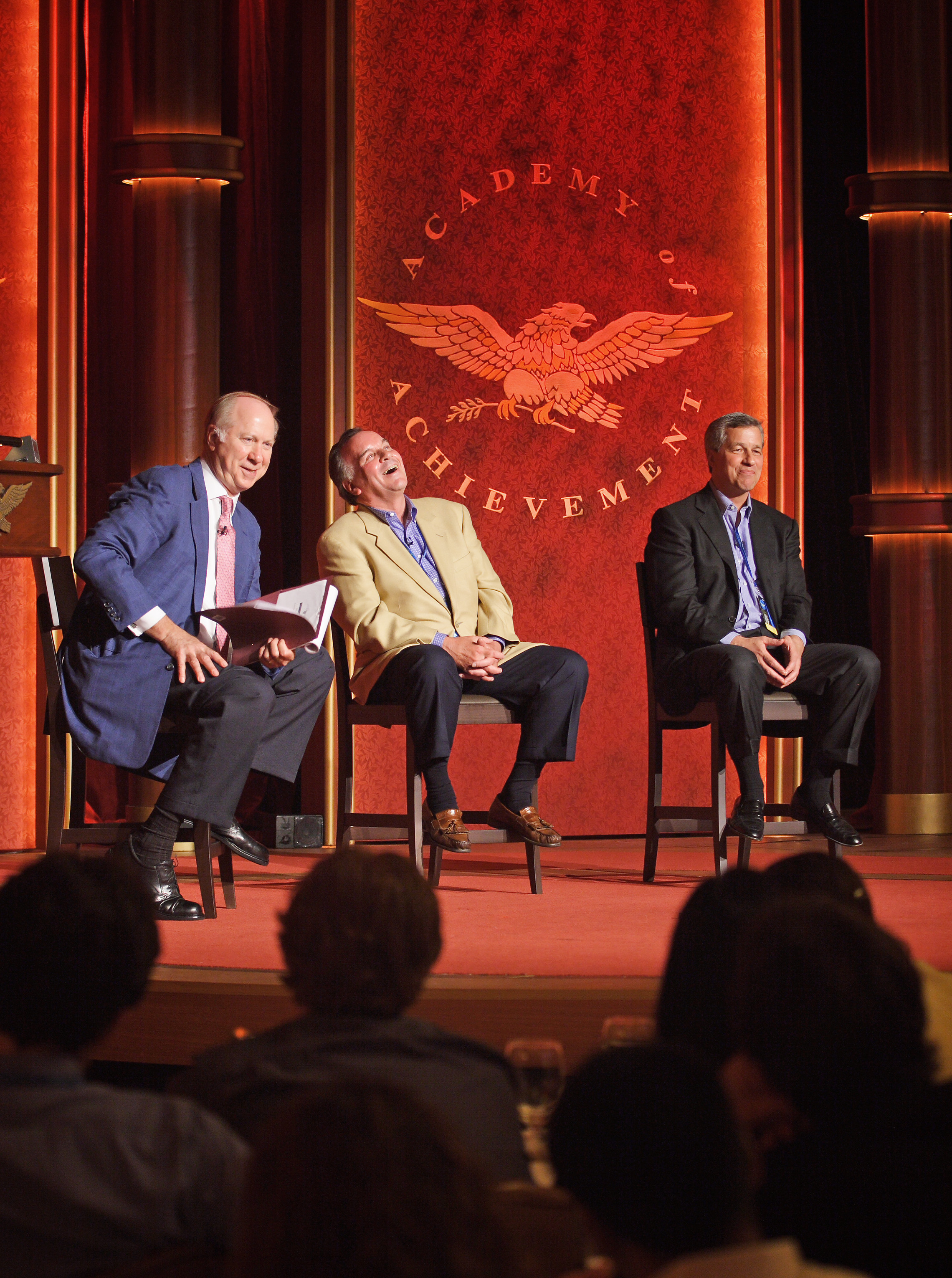
Before the company broke for lunch, America’s pioneer of integrative medicine, Dr. Andrew Weil, gave the audience a welcome lesson in relaxation. Dr. Weil demonstrated a simple but effective technique of conscious breathing that produced highly beneficial results. The entire party then strolled a few short blocks through the sunny streets of Beverly Hills to a casual luncheon at the world-famous restaurant Spago, founded by Academy member Wolfgang Puck. After lunch, the Academy members traveled to the Los Angeles County Museum of Art (LACMA) for another impressive afternoon of symposium speakers and panel discussions.
Award-winning novelist Joan Didion spoke movingly of her odyssey from the heights of success as a novelist and screenwriter to the depths of tragedy and personal loss so vividly expressed in her latest book, The Year of Magical Thinking. America’s first woman in space, Dr. Sally Ride, recalled her historic achievement in space travel and her present campaign to encourage young women and girls to pursue the study of math and science.
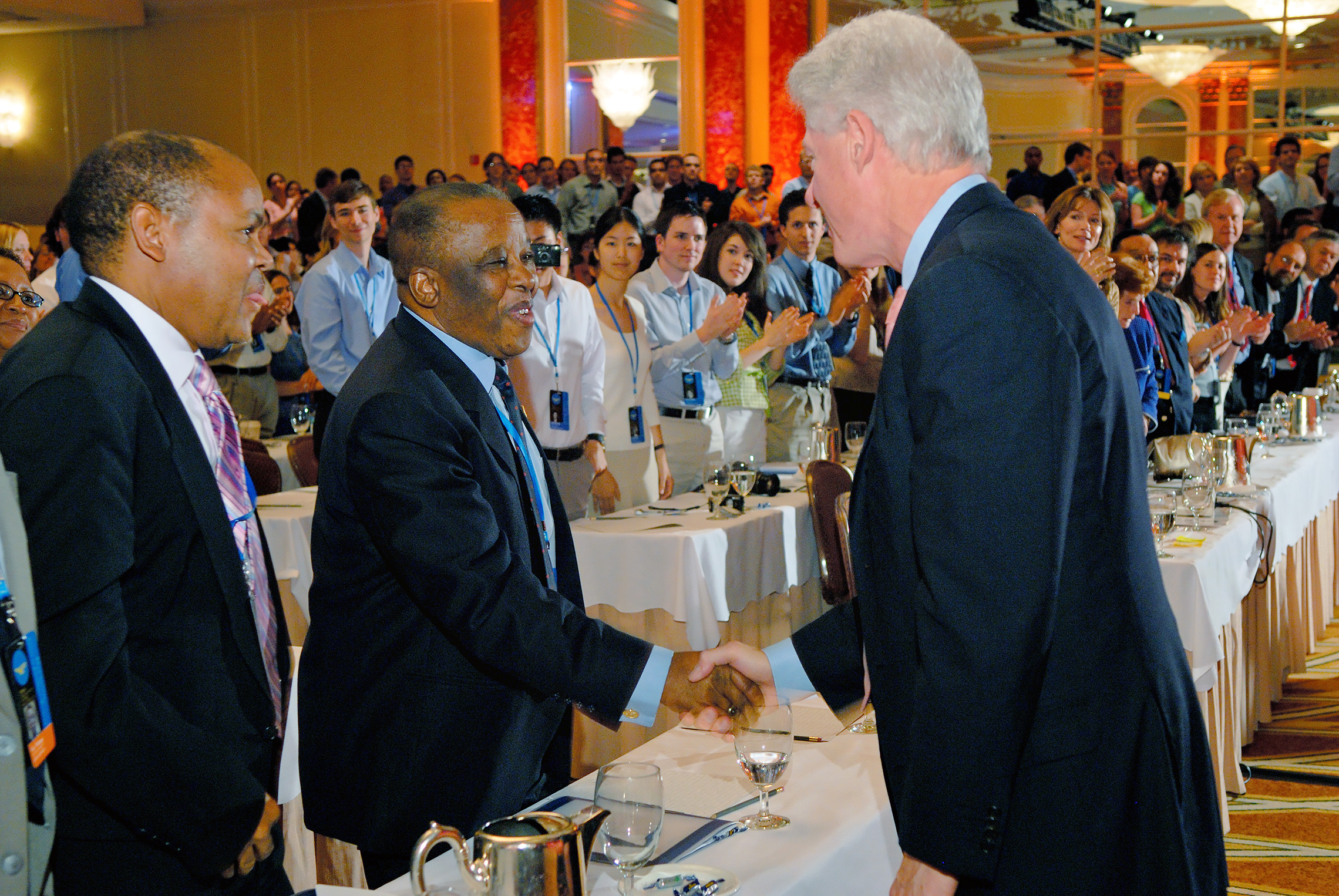
The same afternoon, the Academy was privileged to hear a unique discussion of “Global Cooperation in the Fight Against Terrorism.” The speakers included: Director of National Intelligence John D. Negroponte; former Israeli Prime Minister Ehud Barak; Congresswoman Jane Harman, the ranking Democrat on the House Intelligence Committee; General Joseph Ralston, former NATO Commander; and the recipient of the 2005 Nobel Prize for Peace, Director General of the UN International Atomic Energy Agency, Dr. Mohamed ElBaradei. The discussion was moderated by David Gergen.
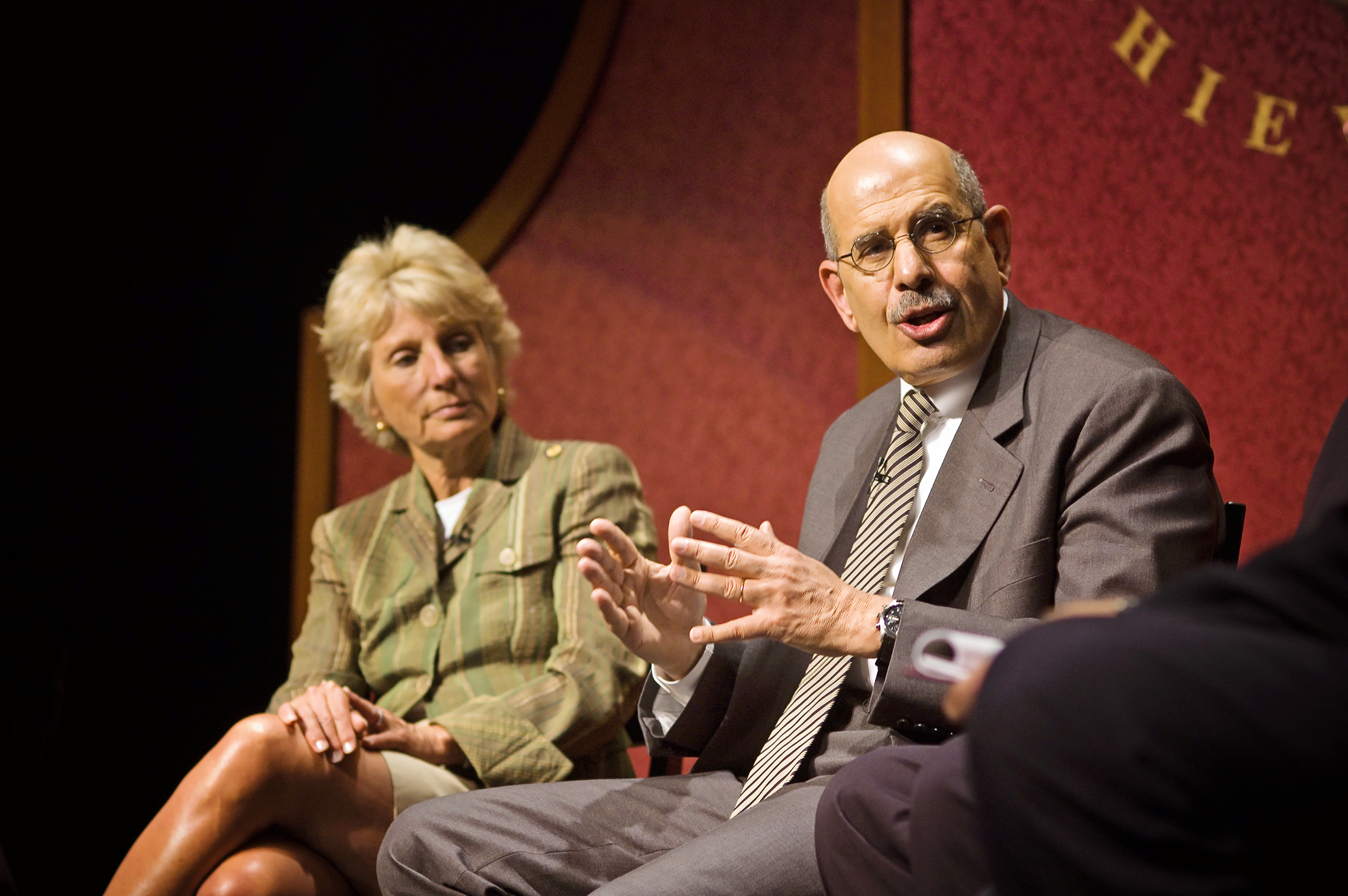
The Academy’s international student delegates afforded themselves of this once-in-a-lifetime opportunity to press the panelists with some of the most difficult questions surrounding these fateful issues. Only in the atmosphere of the International Achievement Summit could public figures participate in so free a discussion of vital questions, without fear that their remarks would be exploited by the news media.
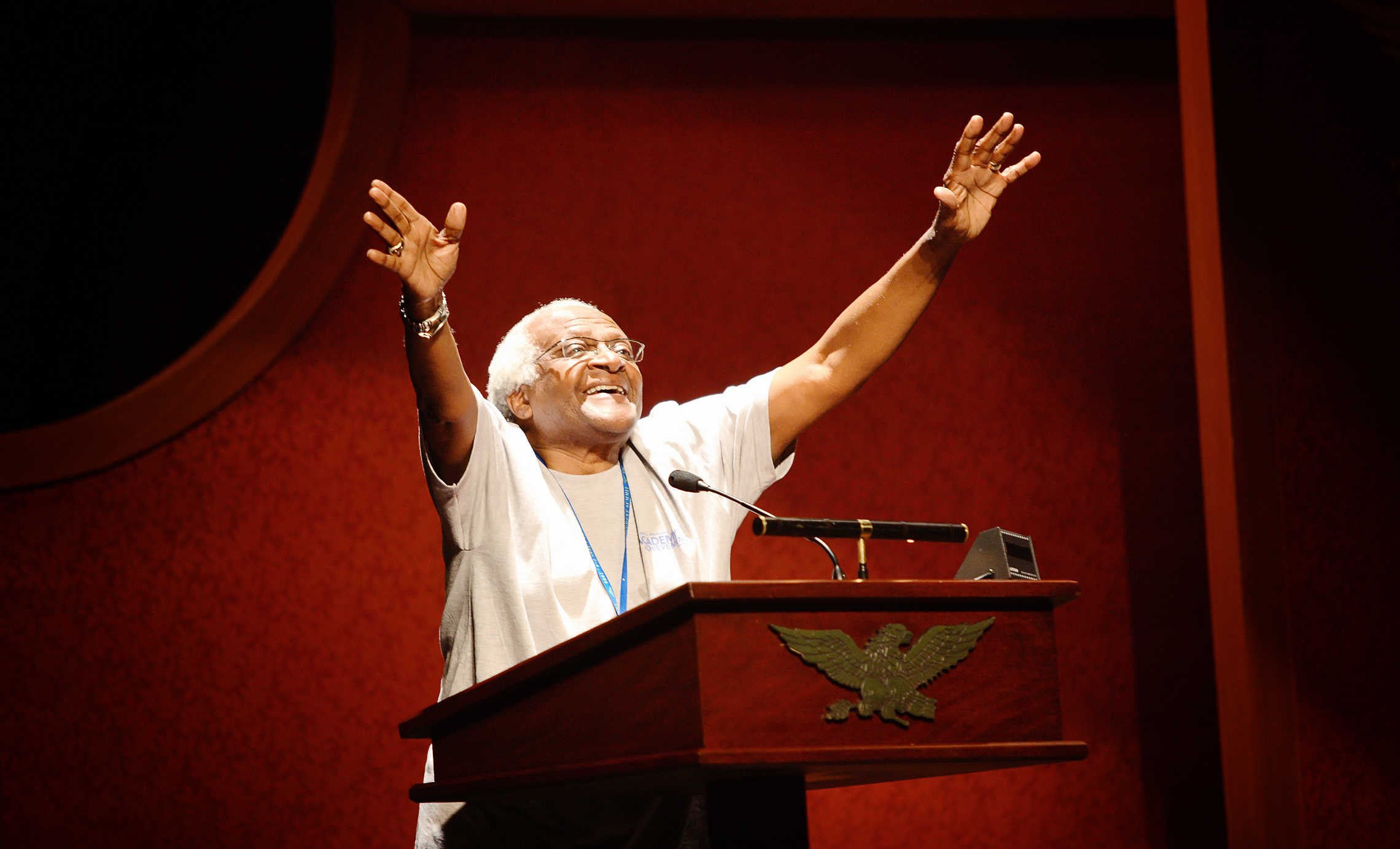
The vibrant young speaker of the California State Assembly, Fabian Núñez, spoke of the challenges facing America’s most populous state, the fifth-largest economy in the world. Speaker Núñez then joined Transportation Secretary Norman Mineta, former Senate Democratic leader Tom Daschle, House Minority Leader Nancy Pelosi and Michael Deaver, a former advisor to President Ronald Reagan, for a discussion of leadership and politics, led by David Gergen. Over the course of the Summit, the Academy also heard from Housing and Urban Development Secretary Alphonso Jackson and from the dynamic Mayor of Los Angeles, Antonio Villaraigosa.
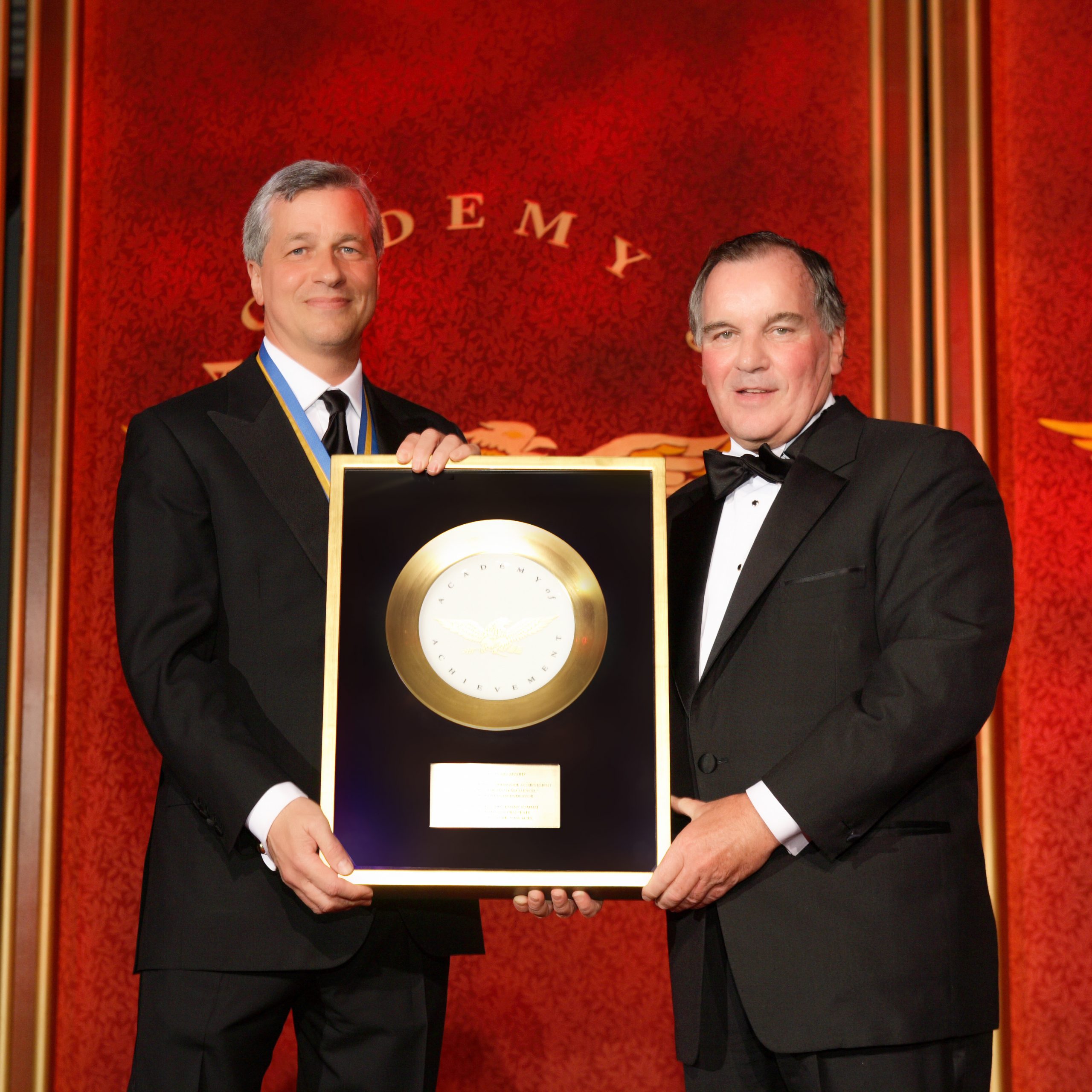
The afternoon session closed with an inspiring address by Archbishop Desmond Tutu. This spiritual leader of the movement for human equality in his own South Africa, took as his text the African fable of the eagle raised among chickens, who must discover his power of flight. “Fly! Fly!” he exhorted the students, urging them to make full use of their own undiscovered powers.
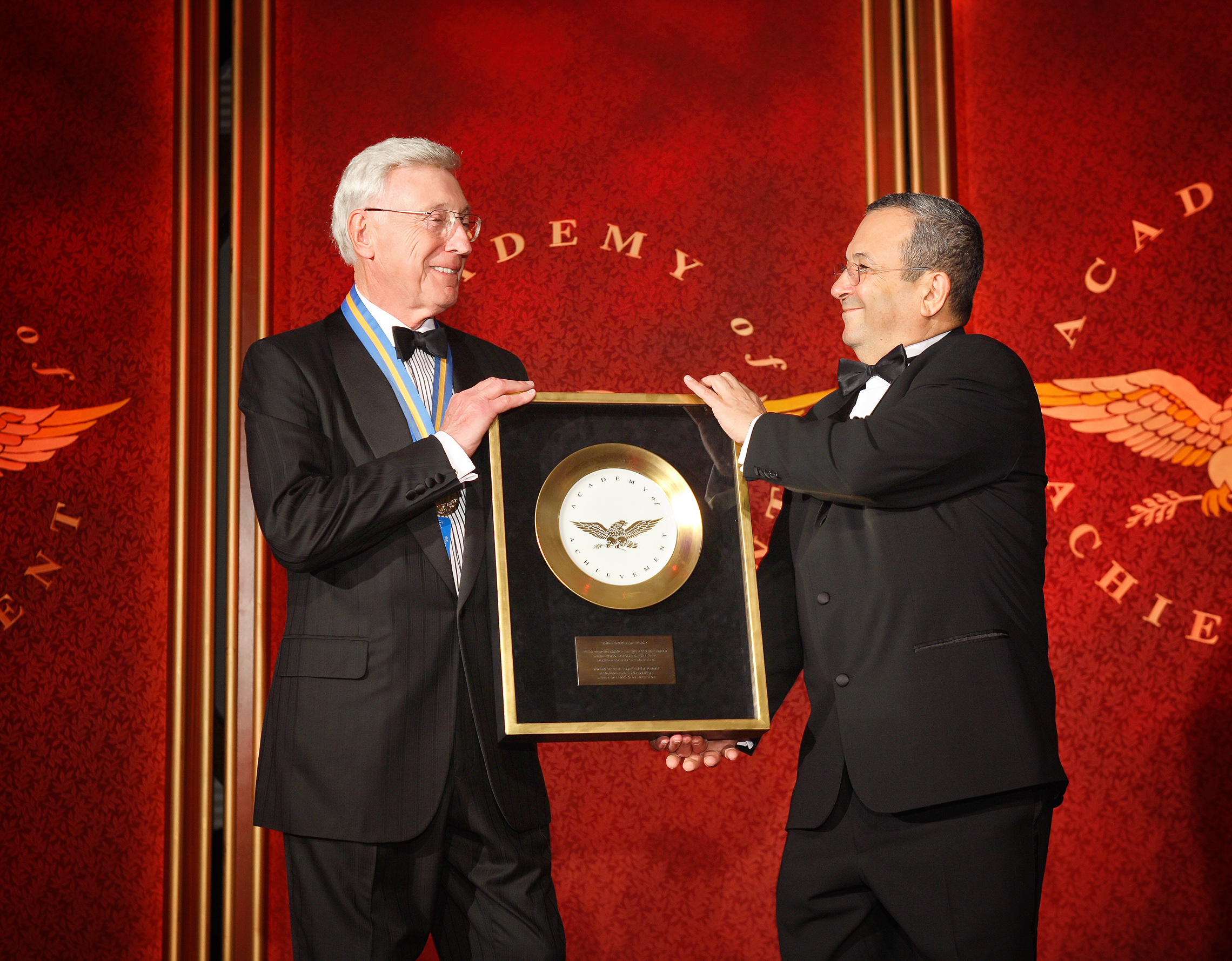
After the afternoon session, the students were treated to a private tour of the most talked-about art exhibit of the year. Five works by the great Austrian painter Gustav Klimt, stolen by the Nazis during World War II, had at last been returned by the Austrian government to their rightful owner. Maria Altmann, the sole survivor of the cultured Viennese family that had commissioned these works at the beginning of the 20th century, now resides in Los Angeles; she graciously lent the paintings to LACMA for this special exhibit. Among the paintings were two portraits of Mrs. Altmann’s aunt, Adele Bloch-Bauer, among the most famous works of Viennese Art Nouveau. Only a week after the Summit, it was reported that the Neue Galerie in New York City had purchased one of the portraits for a reported $135 million, the highest sum ever paid for a work of art.
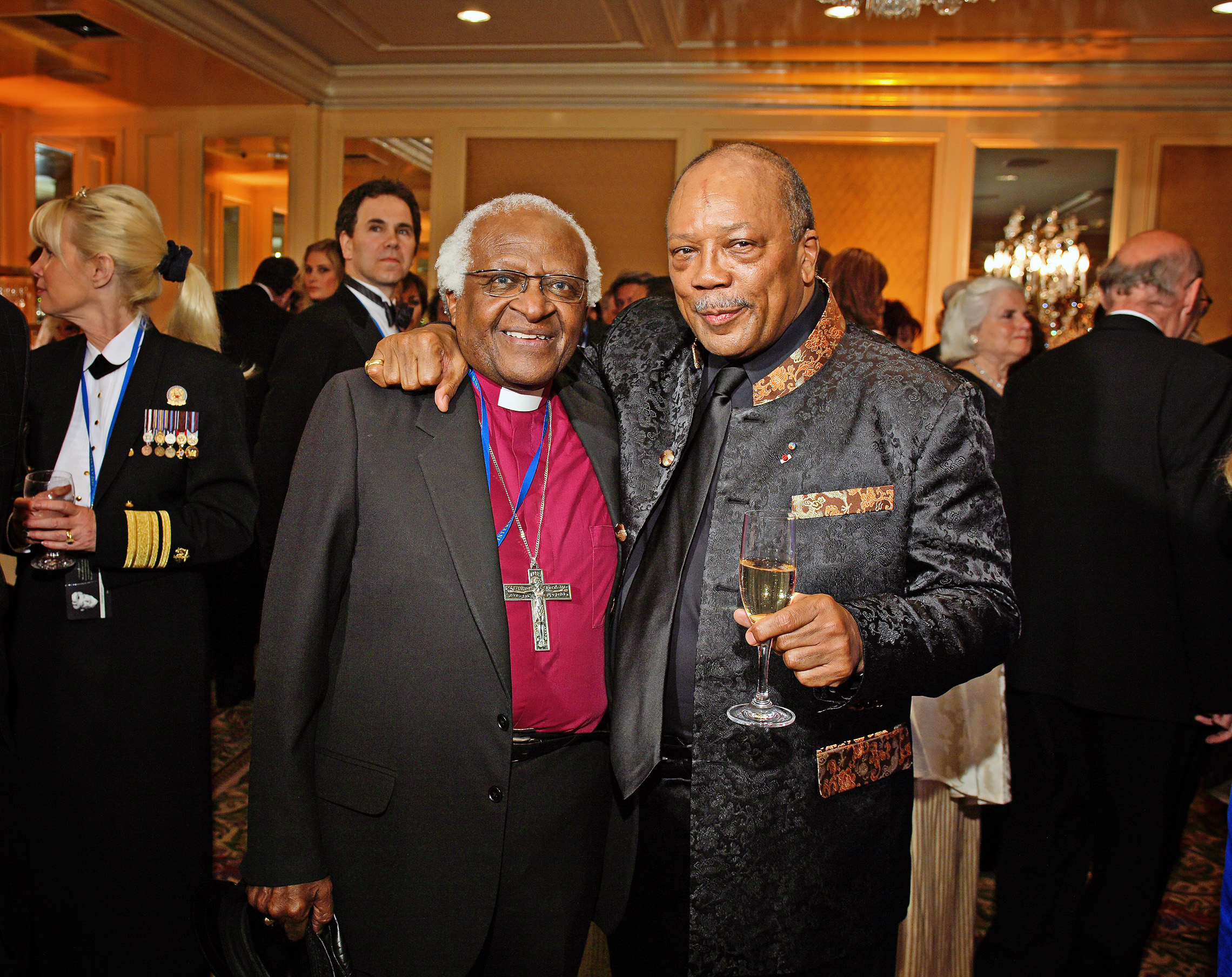
The International Achievement Summit culminated on Saturday night with the spectacular Banquet of the Golden Plate, held in the Grand Ballroom of the Regent Beverly Wilshire, magnificently decorated for the occasion. In a moving ceremony, the Class of 2006 was inducted into the Academy of Achievement by distinguished past honorees of the Academy. The Hosts of the Summit, Catherine B. Reynolds, George Lucas and Steven Spielberg, welcomed Academy members, student delegates and many distinguished guests to the evening, and accepted a proclamation of recognition from the City of Beverly Hills.
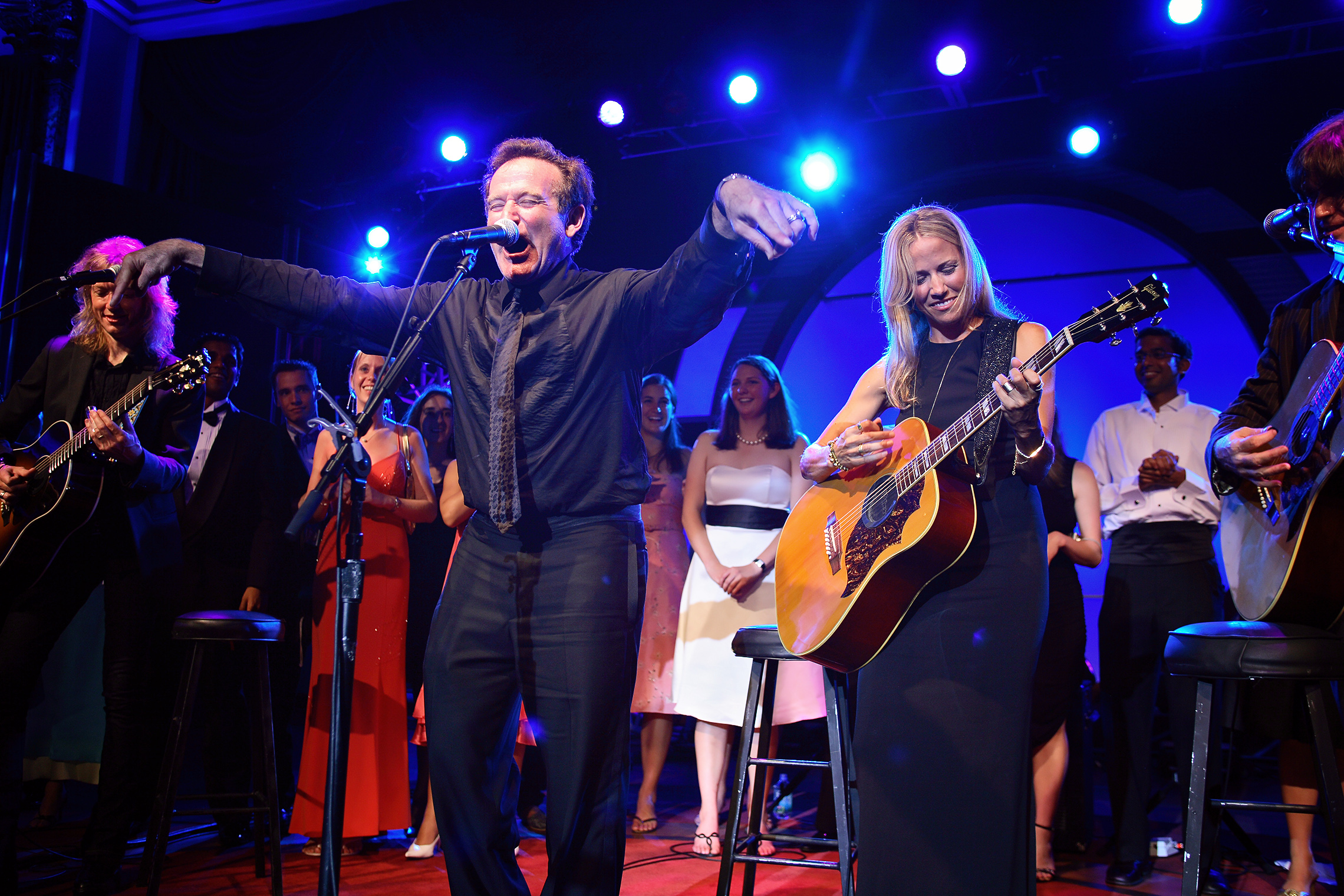
Following a superb dinner, a delighted audience greeted award-winning singer and songwriter Sheryl Crow to the stage. Accompanied by her longtime collaborators, she performed a powerful acoustic set of her most famous songs, “If It Makes You Happy,” “A Change Would Do You Good,” “The First Cut Is the Deepest,” “All I Wanna Do,” “Soak up the Sun,” and “Every Day is a Winding Road.” From the first few notes, the audience members rose to their feet, led by Archbishop Desmond Tutu, and the Banquet became an uninhibited dance party. During Miss Crow’s last number, Academy member Robin Williams jumped onto the stage and improvised a spontaneous rap, hilariously recapping the Academy activities of the previous days, while Sheryl Crow and the band kept the crowd dancing. Student delegates rushed the stage, and even usually reserved friends of the Academy such as David Gergen were seen swaying arm in arm behind the band. On this celebratory note, the evening’s program concluded. The following day, the Academy’s out-of-town guests and student delegates returned to their homes and schools, still warmed and inspired by memories of their visit to Los Angeles and the International Achievement Summit.
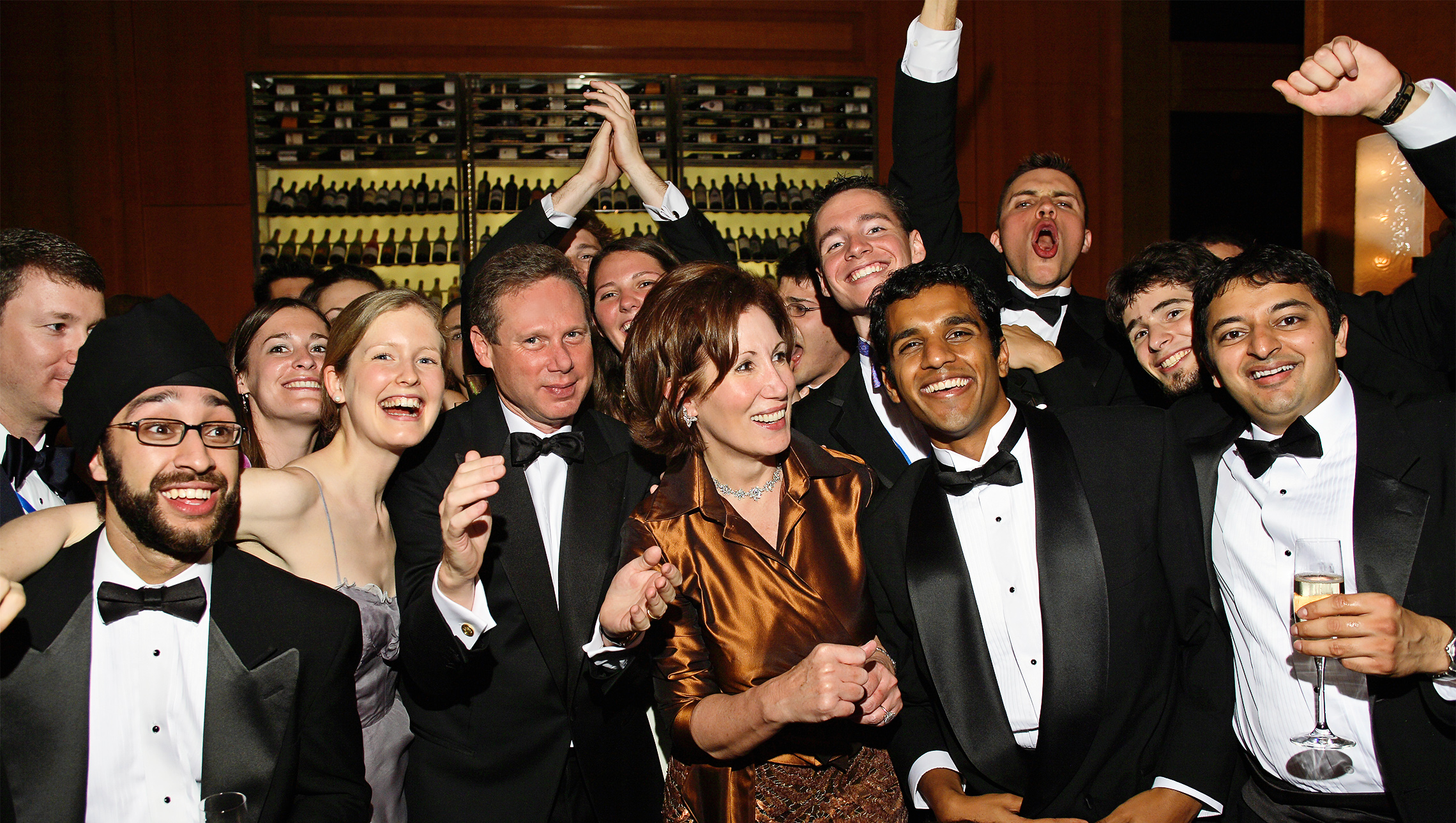

The heartfelt enthusiasm and genuine, unaffected gratitude of the student delegates are among the most rewarding aspects of the International Achievement Summit. We invite you to share in their close encounters with Academy members and fellow delegates, as described in their own words.
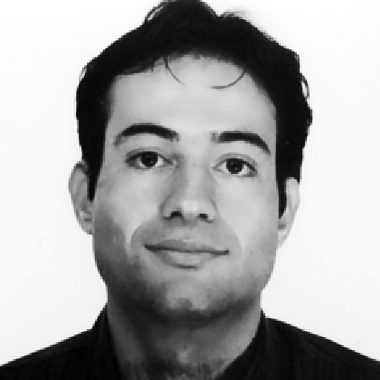
Yaron Nili
Faculty of Law, Hebrew University of Jerusalem
|
Dear Mrs. Reynolds, Firstly, I would like to apologize that this letter comes such a long time after I attended the 45th annual International Achievement Summit in Los Angeles. In fact, various events in the last few months of a life prevented, yet reminded me, to write and thank you for the unforgettable time I had at the conference. The Summit was somewhat of a surreal experience for me. The opportunity to interact not only with outstanding young and promising students from around the world, but also with world leaders drawn from a diverse collection of professional and academic fields left an indelible mark on my identity. I must admit that after returning to Israel, it took me considerable time to fully understand and appreciate the experience I had been through. Unfortunately, for Israel in general and for me in particular, Israel was thrown into war with Lebanon just weeks after my return. I soon found myself in an environment almost the opposite of that which I encountered in L.A., exchanging my suit for a combat uniform, and moving from an elegant hotel to the harsh struggle of the battlefield. Throughout the war, my experience at the Summit helped to keep me sane, though perhaps in a somewhat indirect, obscure way. Knowing that a normal, exciting life, and the opportunities for success to which I was exposed in L.A., lay ahead, was instrumental in balancing the mental and physical stresses of this difficult time. Unfortunately (or fortunately, if looked at another way), I was injured during the war, at Kfar Giladi, in an incident in which 13 of my fellow soldiers were killed. While I was hospitalized, I couldn’t help thinking about the sharp change I had felt as I went from being “on top of the world” at the conference, to almost losing my life in the war. However, I also felt reassured by the experience I had gone through in L.A., and the time that I had lying in a hospital bed with almost nothing to do helped me to digest properly this unbelievable experience. As I daydreamed, memories and lessons from the Summit were raised in my mind, which helped to lift my spirit and my confidence in the fact that I could overcome my injury. |
One practical conclusion that I came to during the time spent at hospital, and which derived mainly from my experience at the Summit, was my decision to try and pursue an advanced law degree in the United States. As you of course know, the Summit brought together outstanding graduate students from around the world to interact with, and learn from, world leaders and each other. We discussed problems facing each of our countries and the industries with which we were involved, enabling me to share my academic interests, and my beliefs regarding the Israeli legal system, with peers from a variety of backgrounds and with diverse career goals. The event enriched me with feedback and perspective from students pursuing careers in such seemingly unrelated fields as film, engineering, and the military. The experience reinforced my belief in the fluidity of the lines between various professional and academic fields. It helped me understand the value of international educational experience, and of intellectual interaction with similarly ambitious, yet differently developed, minds.
As such, I grew determined to apply to schools in the States and to try and complete an LL.M. and J.S.D. in law as the next steps in my career. Today I am in the midst of the application process. Going through the process spawned in me an almost imminent need to write and thank you not only for an amazing Summit but also for a life-changing experience that served as a candle in the dark times and which is the lighthouse of my new path.
Thank you so much.
Sincerely yours,
Yaron Nili
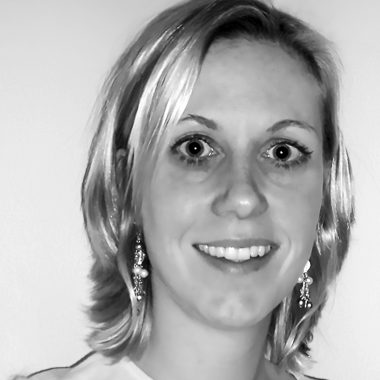
Bernadette Höefer
Society of Fellows, Harvard University
|
Dear Mrs. Reynolds, I just returned to Cambridge, Massachusetts and wanted to write to you immediately to tell you how much those four wonderful days in Los Angeles are continuously on my mind and how I was inspired by the honorees and delegates I was able to meet. The 2006 International Achievement Summit has been one of the happiest moments in my life and has shaped my outlook on life significantly. Thank you for giving me the opportunity to attend the Achievement Summit in Los Angeles this year. Without your generosity and sponsorship, I would never have been able to experience this unique event. Let me share a few moments with you. To begin with, I was struck by the presence of such a large number of international students from all over the world and the wonderful opportunity to connect with people. I was moved by the exchange of ideas, future plans and career goals among the student delegates themselves, but also the sincere interest the honorees revealed in us. Achievement, as was pointed out during one of the panels, is not an individualistic attempt to make our world a better place. Instead, community, exchange, and solidarity were what I experienced during these four days and have touched me deeply. As someone aspiring a career as a writer,
I wish to express the impact these conversations had on my outlook and future plans. I am also very much interested in political thought, and I never envisioned being able to have such an inspiring conversation with Ralph Nader during one of the afternoons, and to be able to discuss current political issues with him. Of course, President Clinton’s speech was one of the highlights from the 2006 Summit, and he brilliantly expressed the need for the future of politics to seek “integration” instead of “interdependence.” His words are still on my mind, as I reflect on the importance of his incredible speech. |
I was also deeply moved by the various aspects of the Summit, starting with the luxury of the hotel, the breathtaking decorations on the tables, the quality of the performances and the variety of artists whom we were able to meet and talk to on a personal level. Personally, for me, the highlight of the performances will remain Sheryl Crow’s stage appearance on the last evening and the incredible atmosphere of enthusiasm and passion that surrounded her. I was able to be on stage with her and a few other delegates for a few minutes and to personally interact with Robin Williams for a brief moment — a truly magnificent moment.
The inspiration from this experience at the Summit will remain in my life, encouraging me to become a devoted, appreciative but also inspirational person to others while keeping the humility I admired in these public speakers. In summary, because of your generosity and vision, I, along with my fellow student delegates, were able to learn how important it can be to make a difference in other people’s lives. I thank you and the Academy for your commitment to education and for giving me the opportunity to attend the 2006 Summit.
Sincerely,
Bernadette Höfer
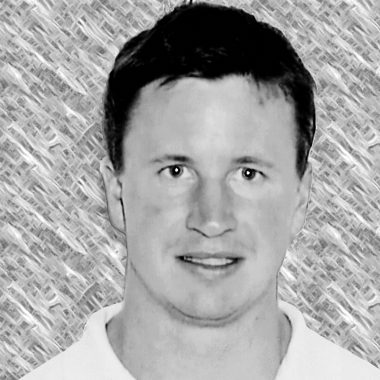
Matthew W. McCarthy
Howard Hughes Fellow, Harvard Medical School
Dear Mrs. Reynolds,
A simple thank you seems altogether inadequate for the astounding experience you have provided at the 2006 International Achievement Summit. Friends and family continue to ask me a most difficult question: “What was the best moment of the conference?”
I’ll recount two for you:
As I sat in the second row listening to Gore Vidal discuss American politics with his unique wit and wisdom, the man seated next to me tapped me on the shoulder and said, “Did he just refer to Americans being encased in fat?” I replied, “Yes, he did.” The man immediately burst into a fit of laughter. It was former Israeli Prime Minister Ehud Barak.
The other moment occurred on the final evening of the conference. A few student delegates were discussing the politics of the Middle East with the Crown Prince of Bahrain. Around 1:30 a.m., a waitress informed us that the bar would be closing soon. The Crown Prince turned to us and said, “I’m really enjoying this. Would you all like to come to my hotel suite to continue this conversation?” We stayed up all night discussing Bahrain and its role in the international community. It was an experience I will never forget.
The Achievement Summit could not have come at a better time for me personally as I will be deciding which field of medicine to pursue in the coming six months. Listening to countless world leaders discuss the need for future physicians to become involved in world health, poverty and the field of infectious disease has compelled me to follow this career path. I must thank you for allowing me to take part in such a special experience. I can assure you that the reach of the Summit will last long after we have returned to our home institutions.
Sincerely,
Matthew W. McCarthy
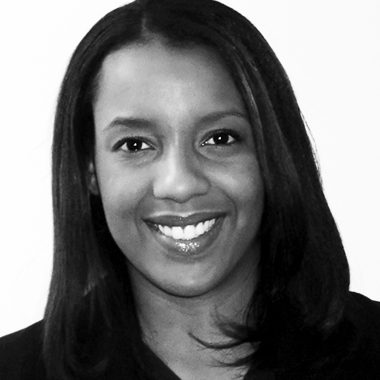
Mya Wilkins
Margery Kraus Scholar and Siebel Scholar, Kellogg School of Management, Northwestern University
Dear Mrs. Reynolds,
I would like to express my sincere thanks to you for giving me the opportunity to attend the International Achievement Summit. It was an experience that I will never forget. I will always be grateful to you and your team for providing me with the opportunity of a lifetime.
Over the past week I have often thought of memories from the Summit.
The experiences were dreamlike: from chatting with Ralph Nader and Sally Field as if we were longtime friends, to dining at the remarkable 20th Century Fox Studios, to hearing from my longtime personal heroes Dr. Ben Carson and President Bill Clinton.
I am sure that I will have visions of Desmond Tutu moving to the music of Sheryl Crow and Savion Glover tap dancing to the rugged rhythms of Sonny Rollins for years to come. Every event that took place during the Summit was incredible as was having the opportunity to get to know the highest achieving scholars from across the world. I am sure that I made friendships that I will keep forever.
It was wonderful to have the most influential individuals from so many different fields share their work and advice. Whether they were discussing issues that I will spend my lifetime pursuing or things that I never closely considered, hearing about them was invaluable. I will forever be grateful for having the opportunity to hear panels and speakers provide information that is so important to our world and our future such as national security, improving third world countries, and how partnerships between businesses and government can contribute to society. It was eye opening to learn about the latest stem cell research from Dr. Hans Keirstead and to listen to great minds of our generation openly debate religion. I was touched by many of the speakers at the Summit, but none more so than Desmond Tutu, who described the incredible capacity for good that humanity possesses. His words and positive disposition were truly inspiring.
The Achievement Summit was an incredible experience. Not only was I deeply moved by the events that occurred, but it also motivated me to continue to pursue excellence and make my own mark on the world. I will always carry with me the advice of many of the speakers who urged us not to be limited by fear of failure and to find and pursue our passions. I will forever be grateful to you for making the Summit possible.
Sincerely,
Mya Wilkins
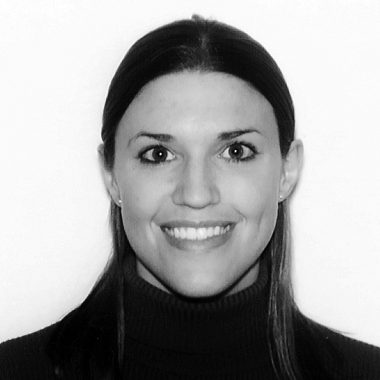
Vanessa Kolbe
University of Virginia School of Law
|
Dear Mrs. Reynolds, As I sit here trying to think of a way to truly express my gratitude, I am at a loss for words. I can only say that the Summit was one of the most inspiring and intellectually stimulating events of my life, and I will forever be grateful for your sponsorship. Like many student delegates before me, I have had a remarkably difficult time explaining the weekend’s events to my family and friends. For good reason, I have received many skeptical looks when I tell them that, on Friday alone, former President Bill Clinton, Ralph Nader, and Justice Anthony Kennedy spoke about their hopes for the future of our country, and Dame Kiri Te Kanawa, Trisha Yearwood, and Sonny Rollins performed at the Fox Studios. One of my highlights was meeting Archbishop Desmond Tutu. As I was going to breakfast, I ran into the Archbishop in the hallway. I was so surprised, all I could say was, “Oh! It’s so nice to see you!” Without hesitating, the Archbishop replied, “No, it’s so nice to see you!” His speech at the LACMA — no more than five minutes long — inspired me beyond belief. Another highlight was speaking with Prince Salman of Bahrain. I was utterly amazed by how approachable Prince Salman was, and I soon found myself joking with him as I would one of my peers. Listening to the prince speak about the progress he has made in his country regarding education, workers’ rights, and economic stability made me realize how much one person can do … even by the young age of 36. Finally, I would like to stress that simply conversing with the other student delegates was a highlight for me. With so many intellectual, motivated, thoughtful young people in the world, surely we should be optimistic about the future. |
|
Again, thank you so much for your sponsorship of such an unbelievable event and for bestowing upon me the opportunity to attend. I assure you that I will strive to live out the messages we received throughout the weekend: to follow my passion, to not be afraid to fail, and to serve the public no matter my occupation. Sincerely, Vanessa Kolbe |
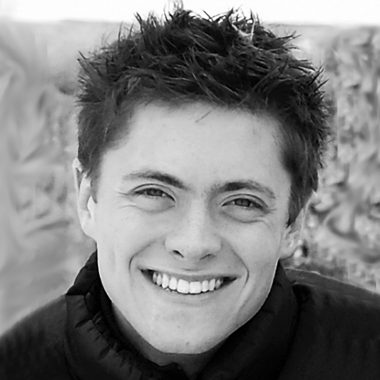
Adam Grogg
Marshall Scholar, Lincoln College, Oxford University
|
Dear Mrs. Reynolds, Thanks very, very much for including me in the 2006 Academy of Achievement Summit in Los Angeles. Your generosity is only matched by the expertise you and other Academy staff demonstrated in putting together a weekend filled with wide-ranging provocation, amazing entertainment, and intense learning. It will not be an experience that I will soon forget, and it is one for which I am deeply grateful. There’s nothing in the world quite like dancing to Sheryl Crow with the President of Latvia and the Director of the International Atomic Energy Agency while Robin Williams tries to steal the mic and rap. And seeing John Williams conduct the L.A. Philharmonic to provide accompaniment for top opera singers and other performers was, in a word, unbelievable. That the world’s best tap dancer and the world’s best jazz soloist had to be eased offstage was representative of the fact that, throughout the weekend, the audience’s energy and awe was mirrored by that of the honorees. Despite such intensity, however, pretenses were noticeably absent: student delegates and honored guests shared down-to-earth attitudes that facilitated meaningful connection and honest communication. Nowhere was this more evident than in the first panel discussion involving Ben Carson, Richard Dawkins, Daniel Dennett, and Francis Collins. Many of us shared the sense that the wide-ranging and brutally honest discussion between these four scientists, of widely diverging backgrounds and opinions, was rare and precious. Thus, within hours of the Summit’s commencement, I realized that all of us had been granted a special window onto a world of authority and excellence, and — even more amazingly — a unique perspective on the ambiguities and debates that riddle that world as any other. It was both surprising and comforting to see that individuals at the top of their fields faced dilemmas not dissimilar to those confronted by us who (hopefully) still have a great deal to learn and do. |
Both Bill Clinton and David Gergen spoke of the cartooned versions of public figures to which people are normally exposed; at the Summit, we were invited to correct and deepen our impressions of today’s leaders, and contemplate the ways in which their experiences are not so dissimilar from our own in navigating difficult situations and confronting significant problems. And what problems there are — speaker after speaker made us intensely aware of the potentially crippling difficulties that our generation will face. Nonetheless, although it was made quite clear that no one had easy or universal answers, over the course of the weekend I often thought that the assembled individuals and amassed resources could have a significant impact on the world if we coordinated our efforts.
When friends and family have asked what I took away from the Summit, I have replied that the overarching theme can be broken down into three parts: first, we have no choice but to dedicate ourselves to serving the public good, although we do have options regarding what means we choose toward that end; second, we often overestimate our power to choose and more generally to affect outcomes by ignoring forces of serendipity and luck; and finally, in order to achieve we must first fail.
I left Los Angeles more purposefully committed to learning how I can best help the world, but also more comfortable in lacking a perfect strategy to do so.
Having revealed to me the humanity and humility of contemporary all-stars in many different fields, the 2006 Academy of Achievement Summit both inspired me to greatness and energized me for the process of getting there. Thanks again for offering me the opportunity to attend.
Sincerely,
Adam Grogg
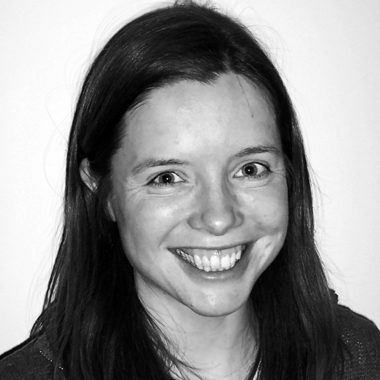
Dr. Claire Grills
Specialty Training Program, Royal Australasian College of Physicians
|
Dear Mrs. Reynolds, Trying to settle back into life in the United Kingdom and sit exams just two days after returning from such an amazing experience as the 45th annual International Achievement Summit has been difficult. As I am sure all the other students could testify, the Summit was a truly remarkable experience and I want to thank you sincerely for the opportunity to attend such a meeting. As was stated in the introductory talk, the Achievement Summit is “one of the world’s best kept secrets.” I had no idea that I would get the opportunity not only to hear from inspiring people at the top of their field but also get to meet them personally and even get to know a few over the couple of days through dinners, bus rides and concerts. Trying to explain to family and friends is impossible as putting into words the wonder of the conference is too difficult. It was fascinating to hear from Mr. Bill Clinton, a man who has held such a position of responsibility. I was encouraged by the changes in Bahrain we heard about from His Highness Shaikh Salman bin Hamad and had great pleasure in eating dinner beside Dr. Mohamed ElBaradei, an inspirational man fighting for peace. Perhaps I was most challenged and motivated by Dr. Benjamin Carson and his lovely wife Candy. Dr. Carson has developed incredible skills in rising to such a respected position in medicine, which is my field also, but retains so much compassion and humanity. As I continue to specialize in medicine, plans are being made to work in the northern part of India where there is no dermatologist for three states. Dr. Carson and his wife too have seen the need in India and I was truly encouraged and challenged to hear of his forthcoming work in separating some Siamese twins. |
|
It would be remiss of me not to mention the wonder of the concert by the L.A. Philharmonic Orchestra at the Fox Studios where I was in awe of such talent and respected people. Tickets for such a concert could not be bought at any price. It was brilliant to hear the excellent Sheryl Crow and see Archbishop Desmond Tutu lead the dancing with Robin Williams performing a supporting role. At the Banquet of the Golden Plate it was wonderful to hear of all these new inductees and their amazing achievements as they were accepted into what is truly a unique academy. I thank you once again for allowing me to have a glimpse of this Academy of Achievement. This is truly a once-in-a-lifetime opportunity and will be invaluable in helping me to realize my vision of improving the health of those desperately in need of access to basic health; in particular, those dealing with HIV-AIDS and in the area of dermatology. Sincerely, Dr. Claire Grills |
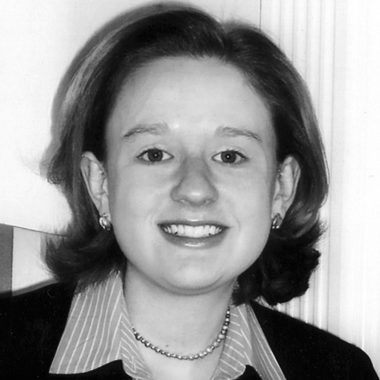
Lauren Gray Gilstrap
Truman Scholar, University of Texas at Austin
|
Dear Mrs. Reynolds, It has been almost a week since our wonderful weekend in Los Angeles and I will confess to you, I am still walking on clouds. The entire weekend was absolutely extraordinary, well beyond my highest expectations. To be honest, when the other nine Truman Scholars and I boarded the plane in Washington, D.C. to fly to the west coast, none of us knew quite what was in store for us. However, on the plane ride back, we could not stop talking about all the exciting things we had the opportunity to see and do. Of all the events planned throughout the week, I believe my favorite was the evening spent at the Fox sound stage. Not only is Julie Andrews absolutely wonderful, the entire evening was one astonishing performance after another. I knew it was going to be something when I walked in and saw the entire L.A. Philharmonic (which has two harps — I have never seen a symphony with more than one). The George Lucas and Steven Spielberg compilation directed by John Williams was wonderful and the Ave Maria and “Climb Every Mountain” sung by Dame Kiri Te Kanawa left me on the verge of tears. Back at the Beverly Wilshire Hotel, the conferences and dinners were fantastic as well.
The next day’s speech by President Clinton left everyone in awe and the various panels we listened to over the course of the weekend were exceptional. Some of my favorite panelists included: Justice Kennedy, Dr. Francis Collins, President Vaira Vike-Freiberga and of course, Archbishop Tutu. The final evening was the perfect ending to a perfect week. I cannot imagine a more entertaining evening than Sheryl Crow performing, with the help of Robin Williams and watching Archbishop Tutu dance along with fellow students. It was truly a wonderful affair! |
|
In addition, I want to mention how wonderful it was to spend the weekend with so many wonderful fellow students. Literally from across the globe, last weekend brought us together and provided a wonderful opportunity to learn about the lives of our peers. The conversations we had and the ideas we discussed were intellectually stimulating and very eye-opening. Again, I want to thank you so very much for including me in this conference. It was such an honor to be selected and the weekend was truly unforgettable. In retrospect, the only word to describe such an experience is “surreal.” It is truly one of those things you have to experience to believe. I wish you and your family a wonderful summer. Thank you again for “truly the weekend of a lifetime!” Yours very truly, Lauren Gray Gilstrap |
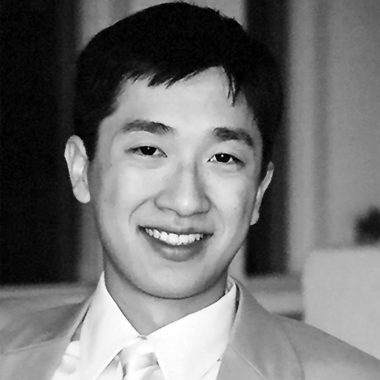
Daniel Tu
Medical Scientist Training Program, Washington University School of Medicine
|
Dear Mrs. Reynolds, Thank you. For the past six years I have been studying to be a physician-scientist. During my research training I studied photobiology, spending much of my time conducting experiments in a pitch-dark room. Once in a long while I would take a moment to imagine where our experiments might lead us, and how the research findings might help people. During my medical training, I have been working hard so that eventually I will be able to help the sick. I have focused on these two endeavors, research and medicine, putting them at the center of my efforts. But meanwhile, I would read about the tragedies occurring daily around the world as well as here in the United States, and I would wonder: “What has our world come to?” and “How could people do such terrible things?” The past few days have changed those questions to “What am I doing about it?” and “What can I do to help?” The Summit speakers, especially Archbishop Desmond Tutu and President Clinton, expanded my view of the world and my view of the responsibilities I have as a human being. They also instilled in me a great sense of hope. The world can be made a better place, and I can make a difference in getting it there. I’m not the same person I was four days ago. If each day of our lives we work to take a step forward and grow, then I feel as if during the past few days, a whirlwind force propelled my spirit leaps and bounds, and in directions I would not have considered otherwise. Thank you. Best wishes, Daniel Tu |
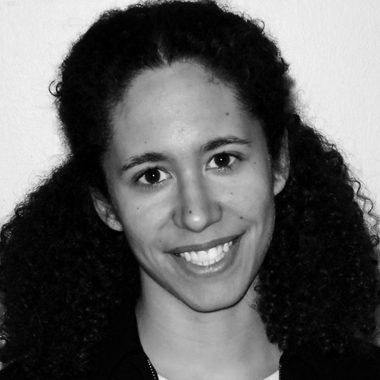
Sarah Caldwell
Catherine B. Reynolds Foundation Fellow, Harvard University Graduate School of Education
|
Dear Mrs. Reynolds, I find myself sitting here, on the eve of my graduation from the Harvard Graduate School of Education, still attempting to process the week that I spent in California and convey the highlights to my family. Both of these endeavors are challenging, potentially even impossible, ones. To begin with, I cannot narrow my encounters with the dozens of inspiring leaders and fascinating students that I met, both on the Catherine B. Reynolds Fellows field trip and at the Achievement Summit, to a handful of highlights. Each time I page back through my notes my memories are refreshed and all experiences take on new meaning. Furthermore, the substance of these experiences is a difficult one to communicate, since neither pictures nor lists of famous attendees reveal the heart of the Summit and its significance in my life. However, I think that part of my responsibility as one of the unbelievably fortunate student delegates is to continue to think through these profound events and how they may shape my own work in the future.
During the Reynolds’ Fellows two days of visits to various organizations in the Los Angeles area, we were able to explore and contrast various approaches to social value creation. We visited the Broad Institute and heard Kevin Hall explain how Eli Broad has stepped back to view what is happening in the education sector on a macro-level; they are employing this knowledge to create change in education from the top down by attracting and training more qualified candidates for management positions in schools and districts. The next day we met Steve Barr of Green Dot Public Schools, a group of charter schools that is attempting to spur change in the Los Angeles School District by creating competition and mobilizing parents to demand smaller high schools. When we visited Ernesto Cortes at One L.A., a branch of the Industrial Areas Foundation, I spoke with one of his organizing leaders, a teacher who has organized teachers and parents at her school to prompt the city to clean up a toxic waste site on the school grounds. |
All of these people espouse innovative yet distinct approaches to tackle the same problems: the inequities and inadequacies of urban schools. As we visited other organizations, I saw the same phenomenon: extremely different people with unique skills tackling problems in a variety of important and complementary ways. If I learned anything from this field trip, it is that there are many ways to approach a problem, and that in my work as a social entrepreneur I must consider carefully both my own set of skills and target the level at which I want to create social value if I aim to be truly effective.
At the Summit, the most important debates of the current day were played out by important actors, from Richard Dawkins and Ben Carson on the relationship between science and faith to John Negroponte and Mohamed ElBaradei on national security. In listening to these conversations, I realized that it is our society’s ability to value this diversity of ideas that has allowed us to move forward in the past. On both a national and international level, this type of respectful dialogue that allows for multiple and changing perspectives will lead us toward a future that is more humane and just for all of the citizens of our world. I think that this understanding was at the crux of many speeches, particularly the one given by Bill Clinton in which he stressed the need to believe that our common humanity matters more than our differences. As I listened to each panel and speaker, I was often overwhelmed with a sense of gratefulness for being included in these discussions. It is an awesome privilege to hear some of the greatest minds of our time in an unscripted setting, and I know that many of the conversations that occurred at the Summit will never be repeated.
I will forever carry with me many unforgettable moments from the week that I spent in Los Angeles. Some of them will relate to the 20 other Catherine B. Reynolds Fellows, who have become not only colleagues but dear friends. This week provided a remarkable seal to our experience together. Other memories will relate to the legendary performers that I saw onstage and in person, from Julie Andrews — who I sang with so many times in childhood — to John Williams, who was the inspiration for my musical interests. I will certainly treasure the memories of my heroes who have made social changes through their passionate visions and relentless determination, in particular Desmond Tutu. As I return to teaching next month, I will ask new questions. What knowledge and habits of thought will our children need to navigate the many challenges of the 21st century? How will we teachers equip them with these capabilities? I believe these questions that the Summit has engendered will inspire my work in the future.
The deepest thanks for the many incomparable experiences I have been able to access through your generosity. To participate in this Summit, and indeed this year as a Catherine B. Reynolds Fellow, has been both the greatest of honors and gifts.
Sarah Caldwell
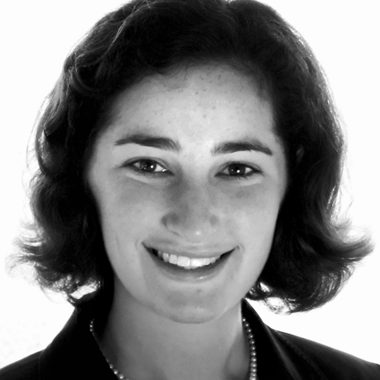
Rachael A. Wagner
Rhodes Scholar, Balliol College, Oxford University
|
Dear Mrs. Reynolds, Where to begin, really? I have tried to write this letter three times now, each time failing to convey the true depth of my gratitude for the invitation to attend the 45th Annual International Achievement Summit. However, I do not want to be rude and delay writing any longer, so hopefully this fourth attempt will suffice. I am in the midst of completing an MBA at Oxford on a Rhodes Scholarship. For a long time, I have wondered what others thought of my decision to go into business, rather than other fields, such as politics, medicine or non-profit work, where the positive impact on society appears to be more direct and obvious. However, the Academy of Achievement allowed me to meet two prominent business people — Jamie Dimon, CEO of JP Morgan, and David Rubenstein, founder of the Carlyle Group — who have both contributed positively to the world. They had important things to say about the role of business as a fundamental pillar of our society, and I enjoyed talking with them. You, yourself, are an example of the positive effect business people can have on others’ lives; this Achievement Summit has given me renewed confidence in my decision to pursue a business career, as well as new ideas about how my business experience can be put to good use in other fields. For example, I had a fantastic conversation with Dean Kamen, the inventor, about his “black box” inventions for providing clean water and electricity to poor, rural communities. He has created the machines, but now he needs an effective business plan for distributing them. I, like many other students at the conference, have volunteered to contribute ideas for this project. Hopefully he will have great implementation successes to report to next year’s Summit attendees! |
|
Most importantly, I have left the Summit with a strong itch to get out of school and start doing already. While I doubt your intention was to persuade us all to drop out of our graduate programs and start trying to solve some of the world’s ills, you very well may have had that effect! Since my course ends in a few months, I do not plan on dropping out, but I am very eager to start actualizing some of this “potential” I’ve been building up over all these years of schooling. Thanks to your generosity, I now feel emboldened and ready for the challenge of putting my education to work. Sincerely, Rachael A. Wagner |
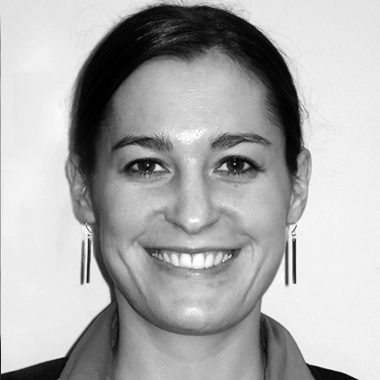
Colleen Gross
Catherine B. Reynolds Foundation Fellow, John F. Kennedy School of Government, Harvard University
|
Dear Mrs. Reynolds, A week after my return, I am still processing the events of my weekend in Beverly Hills at the International Achievement Summit. What an experience. I had heard big and amazing things about past years and, admittedly, had high expectations for the weekend. As the event approached, I became wary of these expectations, certain that the event would fail to measure up in some way to all I had heard and read about years past. I was very, very wrong. Day after day, event after event, I was completely enthralled by the discussions I heard and the people with whom I spoke. The weekend was filled with people who have dedicated their lives to the causes about which they are most passionate, and who have had real, profound impact on the world. It was so incredibly inspiring.
To listen enraptured as the Los Angeles Philharmonic Orchestra played the theme songs to the George Lucas and Steven Spielberg movies that define my childhood while watching clips from the films. And to watch Savion Glover dance to Sonny Rollins’ sax. To hear and see all of this in one evening at one venue was utterly superb and absolutely breathtaking. I had to continually remind myself that I was really in this moment right now, that it was not just a dream and not yet a memory. Without a doubt, this was the most thrilling musical and cultural event I have ever attended, or am likely to attend, in my entire life. Several of the panel discussions I found particularly interesting. Hearing the foremost minds in science discuss the role of God in science was absolutely fantastic — a conversation I wish we could have more often. I might mention, too, that the quality of that debate combined with the respectful nature in which the panelists disagreed was a refreshing change from the yelling we often hear during such conversations. |
I also loved the cross-pollination of the fields represented. During the film panel, I initially found it amusing that Justice Kennedy was included amongst the blockbuster Hollywood directors and producers. I wondered what expertise or additional insight he was likely to bring to a Hollywood discussion. And then he twice refrained from adding commentary to a conversation because the topic may very soon be landing on his desk to be reviewed by the Supreme Court! It was a beautiful illustration of how intimately interrelated all sectors and disciplines are.
But the highlight of the weekend was most certainly the opportunity to talk with honorees in a more casual setting — during a meal, at the late-night receptions, in the elevator, on the bus. I found myself conversing about family with George Lucas, discussing favorite foods with Marvin Minsky (in between debates about religion!), chatting 2008 presidential politics with Chris Matthews, and asking Jack Horner about the details of his latest archaeological dig and the scientific relevance of the discovery of dinosaur blood cells. I questioned Larry Page about Google’s decision to accept China’s censorship policies and talked with David Rubenstein about my ideas for creating small-scale personal investment opportunities in Latin America. And I danced to Sheryl Crow’s lively, energetic sounds alongside Archbishop Desmond Tutu, Naomi Judd, and the President of Latvia.
Where else could one possibly find such an eclectic and accomplished group of people, all under one roof, attending the same event, and accessible to students and to each other? Certainly, nothing similar exists. The daily interactions and these personal discussions made me see the very human side of each of the honorees and guests. While our celebrity-crazed culture likes to deify celebrities and make them seem untouchable, you proved that they are, in fact, both reachable and human. And in demonstrating this, you quietly tapped on my soul to help me realize that I, too, am capable of achieving such great change in this world. A weekend that originally felt out of this world became the epitome of what this world is about.
Thank you, Mrs. Reynolds, for believing in me, for investing in me, and for providing such inspiration and support to so many people. I will never forget this event nor the renewed determination it has instilled in me to truly make this world a better place.
With deepest gratitude,
Colleen Gross
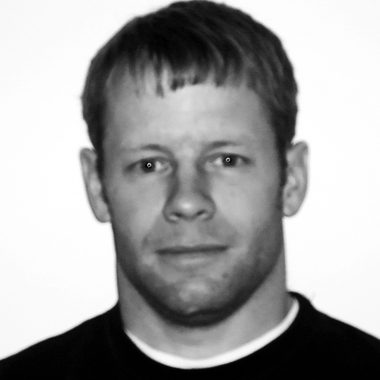
Captain Jonathan S. Dunn, USA
Paul H. Nitze School of Advanced International Studies, Johns Hopkins University
|
Dear Mrs. Reynolds, First of all, I want to thank you for having the vision to organize such an incredibly rewarding event such as the International Achievement Summit. The idea of bringing together such accomplished “achievers” with an equally impressive group of young “achievers” is a wonderful one. I often found myself wondering how I was so fortunate to be in such an accomplished group. I never would have thought that a weekend event could leave such a motivating and inspirational impression that is sure to last the rest of my lifetime. Upon returning from the Summit I was frequently asked by friends and family what it was about, and like many of my colleagues I am sure, found myself unable to find the right words. I think you have to experience it for yourself to be able to truly understand it. It was amazing to be able to see and hear so many of the world’s greatest achievers, from such varied life pursuits, and then to engage them in conversation and at times debate in an informal setting. Pressed to choose among the many incredible moments and experiences of the Summit, two tend to stand out in my mind. First was an extended conversation with General Wesley Clark over a couple of beers on Friday night after the marvelous evening at 20th Century Fox Studios. As a current Army officer and future instructor of international relations at West Point, it was incredible to be able to debate current security issues with such an accomplished figure. Second, was the performance by Sheryl Crow to cap the Golden Plate Awards Banquet. I have always been a fan of her music, and I never would have imagined that I would be seeing her play live from five feet away, while dancing next to Sally Field and Archbishop Desmond Tutu. While explaining this incredible scene to my friends and family provides a great story, as I reflect on it, a powerful insight is what strikes me about it now — these great achievers are real people just like me, and yet they have accomplished so much in their lifetime. Why can’t I and others like me achieve so much for the betterment of today’s world citizenry? The answer, reiterated time and again during the Summit, is that there is no reason. |
Once again, thank you for such a wonderful opportunity to meet such an amazing group of people. My commitment to public service has been reaffirmed and reinvigorated. As I begin teaching future leaders at West Point, I will be sure to impart the message from all of the great achievers I met at the Summit — that we are all ordinary human beings, and it is ordinary human beings with extraordinary will who achieve great things.
Sincerely,
Captain Jonathan S. Dunn, USA
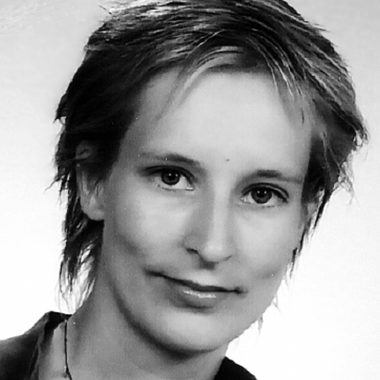
Cornelia Schneider
The Fletcher School of Law and Diplomacy, Tufts University
|
Dear Mrs. Reynolds, “Forget the veneer,” was the advice that Secretary of State Alphonso Jackson had for hundreds of student delegates at the 45th Achievement Summit in Los Angeles last week. The Secretary was referring to the difference between black and white citizens (or fellow beings of the “darker and lighter hue,” as he called them), but he may just as easily have referred to young and old, rich and poor, famous and ordinary. Indeed, his words capture perfectly the tone of this weekend, where students mingled with VIP delegates as if it was the most natural thing in the world. The nice gentleman who introduced himself as Chris on the bus to 20th Century Fox studios mentioned in passing that he had been living in London “while we were shooting Harry Potter II,” and I realized only then that I had been chatting casually to director Chris Columbus. For one weekend, all of us were on the same level, young students and the world’s brightest scientists, lawyers, politicians, and artists. We interacted with them not simply at conference level, but over breakfast, lunch and dinner, in elevators and restrooms, and during early-morning visits to the hotel gym. For me, the outstanding performance of Sheryl Crow (backed up by none other than Robin Williams) best summed up the overall feeling of the weekend when, inspired by Desmond Tutu who had taken to the dance floor early on, I found myself dancing next to Mohamed EIBaradei and the President of Latvia. I want to take this opportunity, Mrs. Reynolds, to thank you wholeheartedly for giving me the opportunity to attend this extraordinary event. Through your generosity and vision, you created a weekend full of awe and inspiration, and provided me with lasting memories and new friendships. I would like to share with you some of the moments that most left a mark on me. I found myself thrilled to listen to the words of those who excelled in fields outside of my own field of specialization. Nobody engaged in platitudes or dwelled on their long list of achievements; instead speakers provided little anecdotes or gave us a few simple truths. Scientist Miguel Nicolelis chose to share with us the wise words of his grandmother: “When the dream is bigger than the place you’re in, leave for a place that allows you to pursue your dream” — important reassurance after having lived outside of my native Germany for the past twelve years in pursuit of my own personal dream. |
David Rubenstein, the Managing Director of The Carlyle Group, reminded us that failure is often a necessary ingredient of success, words echoed by former President Bill Clinton who reiterated that failure in one arena should never derail one’s dreams, but merely inspire one to strive on and learn from one’s mistakes. “Take criticism seriously, but not personally,” was one of his wife’s pieces of advice that I have vowed to take to heart and that must have resonated well with His Highness Shaikh Salman Bin Hamad.
Only marginally older than many of the students present at the Summit, the Crown Prince of Bahrain talked about the challenges his country faces in the fields of education, health care, integration of guest workers, and transforming Bahrain into a modern society.
I was struck by his words that when effecting real change, it is impossible to please everyone.
Dr. Sally Ride, the first American woman in space who today seeks to promote the study of science and mathematics to young girls and women, told an anecdote that was as inspiring as it was entertaining: the story of a little boy who, after months of following Dr. Ride’s first journey into space and becoming quite an avid follower of her work, burst into tears after the launch of the space shuttle, inquiring of his mother: “Mummy, can little boys grow up to be astronauts, too?” And how could I forget Archbishop Desmond Tutu, our surprise visitor on Saturday afternoon, whom I had never had the honor of hearing speak in person before? His speech was more of a song, every word intoned for maximum effect that sent shivers down my spine, delaying words in the right place for suspense, using his arms for support, and telling us that we were eagles, not chickens. In the face of total evil, Archbishop Tutu and the people he talked about managed to retain their humanity and remind us all that humanity can be as magnanimous as it can be evil. God expects us to spread our pinions and lift off, he told us, and fly toward goodness, compassion, and gentleness.
On the artistic side of the Summit, the performance by Dame Kiri Te Kanawa, accompanied by the Los Angeles Philharmonic Orchestra in the 20th Century Fox studios, was simply out of this world. And seeing Sonny Rollins perform with tap dancer Savion Glover left me in awe — the two of them seemed to have worked themselves almost into a trance during their dance-jazz duet, which was completely infectious.
During a weekend of meeting such amazing personalities, it would have been easy to get carried away with a feeling of inflated self-importance. What struck me most, however, was the persistent attitude of humility and lack of importance that exuded from everybody I came into contact with. David Rubenstein remarked that he would never have been invited to a conference such as this weekend’s at the time he was our age, and invited us not to rest on our laurels.
Lastly, Mrs. Reynolds, I wanted to stress how grateful I am to you for having introduced me to such a large number of outstanding student delegates within and outside of my own specialization. It was exciting to perceive the buzz that was going through the Beverly Wilshire Hotel all weekend, as backgrounds were told, contacts exchanged, business ideas brainstormed, and future visits planned. After a week of a spontaneous road trip through California with four Rhodes Scholars whom I met at the Achievement Summit during which we visited several other Achievement student delegates, I fully believe that the ties of friendship forged during this trip will be lasting ones.
The memories go on and on. Once again, let me thank you for stripping the veneer of the aura of the unachievable for one weekend, Mrs. Reynolds, and for showing each of us how far our ambitions can take us. The inspiration gained over this weekend will stay with me for a long time to come.
Yours sincerely,
Cornelia Schneider
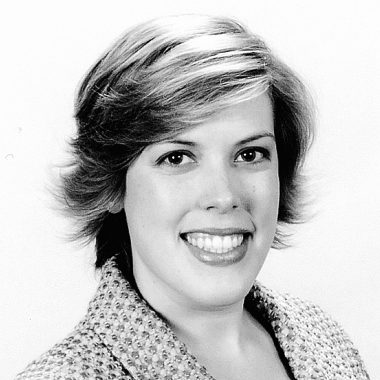
Ashley M. Holder
Howard Hughes Fellow, Baylor College of Medicine
|
Dear Mrs. Reynolds, While reading your letter of invitation from last September, I realized that I could not have anticipated the impact that the 45th Annual International Achievement Summit would have on my life. The whirlwind thrill ride that I experienced on June 1 – 4 is simply indescribable. On the flight home as I reread the biographies of other students and the Golden Plate award winners, I reflected on how fortunate I was to be selected as a student delegate to such an event. Thank you very much for sponsoring my attendance at this year’s Summit. As I could not possibly convey my gratitude for such an opportunity, I would like instead to share with you how this experience has changed me forever. From the first day of speakers and panelists, I was in awe of these thought-provoking individuals and intrigued by the fascinating topics such as God’s existence and the future of Planet Earth. The next day, the panels and speakers sparked a passion within me that I had tucked away these past few years while doing research and attending medical school. Specifically, the panel discussion on HIV-AIDS and the status of the developing world reminded me of why I had entered the field of medicine — to help and more importantly, to serve others. As Mr. Rubenstein encouraged us not to “rest on our laurels” and not to be satisfied with what we “had accomplished in our first 25 years of life,” I began to reflect on my own path. I have always wanted to do volunteer medical work abroad. However, I finally accepted that, although I had been intellectually captivated by interventional radiology, I would be hard-pressed to translate this field into work I could do abroad. Without expensive equipment or even electricity, training in interventional radiology would be virtually worthless in so many parts of the world. If my passion truly was to improve the health of people worldwide, I needed to develop a new plan. In meeting and talking with other student delegates, I discovered that I was not alone in my reawakening. Remarkable students from all over the globe similarly experienced this longing to reassess their priorities and consider the dreams they once had; naïveté, as so aptly said by Wendy Kopp, is sometimes one’s greatest asset. |
As we waited to board our flights home, another student delegate and I were discussing our amazement at the impact the Summit had on our lives in just four days. She asked me about how this weekend had been a life-changing experience for me. I answered, “I really want to make a difference in people’s lives, more than just by being a caring physician. I want to leave the world a better place than I found it. I think I’m going to work in Africa and fight HIV. Then, I want to become part of UNICEF or UNAIDS or some other NGO and be a voice for children.” She smiled and said, “I have no doubt that you can do it.” At first, I was slightly startled by my passionate reaction, but I realized then that I had discovered my calling — to serve the children of the world.
I now plan to pursue a residency in pediatrics and then to join the Baylor Pediatric AIDS Initiative. I hope to travel to countries such as Botswana, Lesotho, and Romania where children have been among the most affected by HIV. When I picture my life ten or even 20 years from now, I am not standing in an operating suite. Instead, I envision myself comforting a suffering child and working for UNICEF to improve the health of all children.
Thank you for allowing me to be a part of this extraordinary event and for making this amazingly inspirational experience possible. I know that the memory of those four days will live inside me for the rest of my life.
Sincerely yours,
Ashley M. Holder
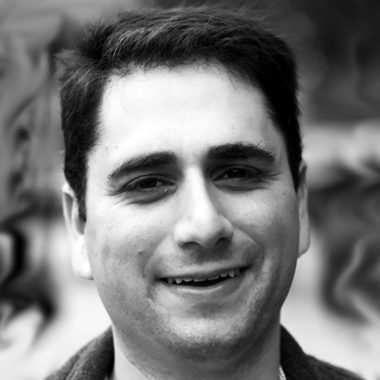
Steven Fransblow
Siebel Scholar, Sloan School of Management, Massachusetts Institute of Technology
|
Dear Mrs. Reynolds, I am writing to thank you for inviting me to partake in the opportunity of a lifetime. The Achievement Summit surpassed my wildest dreams. Your generosity and vision of bringing together individual achievers with students resulted in a fantastic weekend filled with exciting events, scholarly conversations and some of the most thought-provoking discussions. Minutes turn to hours as I describe to friends and family the people I met, from the invited achievers to my fellow students, who sparked my imagination through our profound interactions. There is no other event that I can think of that would bring together such a diverse group of people coupled with the brightest minds in our generation. I still cannot believe that on Saturday I had a long conversation with world leaders including Wes Clark and Mohamed ElBaradei about world politics followed by an evening where I got to meet Sally Field and interact with the Crown Price of Bahrain all to the music of Sheryl Crow. The excessive onslaught of world famous people overwhelms colleagues back at MIT when I recount my experience to them in vivid detail. Hearing President Clinton speak was a highlight, as he challenged us to envision the 21st century and determine what we need to do to achieve our vision with the new realities of globalization. I especially liked the President’s advice to take criticism seriously and not personally. Chatting with Dean Kamen brought to life how my studies in business coupled with my engineering background can really make a difference in the world. Developing an innovative business model for his newest invention that delivers clean water to rural villages is just the type of challenge that I hope to solve. Furthermore, Ralph Nader’s talk regarding how our fear of failure stifles growth and innovation rang particularly true for me. In the myriad of choices in life, it is important to be reminded that by choosing the more difficult paths, you are unlikely to be loved, but you will be respected and it may lead to great achievement. David Rubenstein echoed Nader’s comments with his commentary on how we should take risks and find our passion. |
My most in-depth conversation occurred over lunches. On Friday, I had the honor of meeting General Ralston and learning about his military experiences and views on China. In the spirit of President Clinton’s focus on our increased interdependency on the developing world, our chat turned from China and India to Europe and the Middle East as we discussed America’s role in the world. At Spago on Saturday, I had such an engaging chat with Chris Matthews that I almost did not finish my delicious lunch. As a recent newcomer to the U.S., I challenged Mr. Matthews on his views on the media’s role in our society and their responsibility to accurately report world news, not just cater to the masses’ desire for lower quality entertainment-style programming. Our discussion also led to some brainstorming on TV’s revenue model and how Mr. Matthews’s show Hardball will need to evolve from a broadcast program on cable to build new revenue sources like adding an Internet subscription service.
Finally, I truly enjoyed Sheryl Crow’s performance and the Banquet of the Golden Plate. Spending time with my fellow students was incredibly rewarding.
I met so many impressive colleagues, from Air Force Captains in the White House Fellows program to neuroscientists trying to discover cures for cancer.
Over the next few months I will be making great efforts to stay in touch and build stronger friendships.
The week after the Summit, I graduated from MIT Sloan with an MBA. As I venture back out into the working world, the experience will encourage me to further my life work beyond simple business; there are millions of people worldwide who I can help through my education, passion and skills. I have been truly blessed by my opportunities and I will strive to build more roads for more citizens to achieve and live their dreams. Thank you for your generosity in making this event possible and giving me the occasion to interact with and learn from so many fascinating people.
Sincerely,
Steven Fransblow
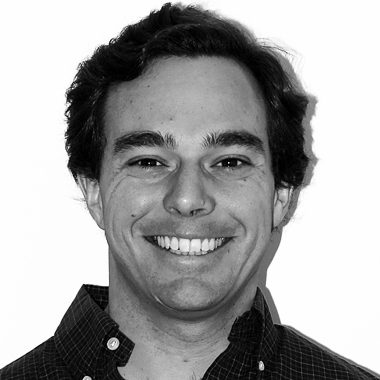
Ricardo Borges de Castro
Fulbright Scholar, Fletcher School of Law and Diplomacy, Tufts University
|
Dear Mrs. Reynolds, I apologize if this letter seems late. After leaving Los Angeles, I have been flying between Boston, Lisbon, Brussels, Oxford, London and Lisbon again. While I am on safe ground now, I feel as if I am still “flying.” Thank you for a weekend full of wisdom and amusement. I thank you for the opportunity to learn from outstanding students and guest speakers! The tale narrated by Archbishop Tutu, where an eagle that had been raised among chickens is taught to fly, is in my opinion one of the big lessons of the weekend: don’t be afraid to “fly!” That is to say, break from imposed ties and follow your own path. A message that should motivate each student present at the Academy Summit to pursue new avenues and to face the challenges of such options. Yet, all new itineraries should be consequential. In that sense, the tale — also a metaphor of the liberation of South Africans from Apartheid — and the bishop’s insight on forgiveness and understanding among peoples was a remarkable example to guide one’s choices. Besides Desmond Tutu, other guests, by their work or their words, were also inspiring. The lessons, the insights, the knowledge passed on can fill many, many pages. However, I will only highlight other speakers that, as far as I am concerned, complement and concur with the Archbishop’s words. Gore Vidal — a “writer for life” — sublimely intelligent and irreverent as very few, showed that “flying” may have costs, but maintaining and fighting for one’s views and ideas is, in the end, the best reward. He is one of the great American authors of the century and has been an observer and critic of the American political and social establishments. Such behavior has earned him foes and a choir of disaffection but he has not changed a line in his course. And that is a great example to convey. “Flying” and choosing, sometimes, the most difficult journey is only part of the equation. As I mentioned before, one’s choices should be meaningful. Two very distinct speakers offered some context: President Clinton and Joan Didion. |
President Clinton challenged us with four pertinent questions. When answered, they should guide our endeavors: “What is the fundamental nature of the 21st century? What would one like it to be? How to achieve it? And, who is going to do it?” In other words, one of the great leaders of our time exhorted us to look ahead, envision a better world, find a way to achieve it and, finally, to lead. Also, he cautioned us not to give up when facing obstacles and criticisms — “take them seriously but not personally” (quoting Hillary Clinton).
Lastly, Joan Didion. At LACMA, many were disturbed by the writer’s words. But Didion’s message was, in my perspective, about love, not loss. When she mentioned “not having the first reader … who is the person that you trust more than yourself,” evoking her late husband, she was talking about love and the importance of love in everyone’s life. Loving and being loved came through, in her words, as a way to give meaning to life. Love should thus be central in our choices and as a means to fulfill our goals and worldview.
Listening to your guests, meeting other students, learning from the best and having a major good time made the Summit one of the best weekends of my life. Thank you! I hope that I can keep “flying” and live up to the challenges presented.
Please extend many thanks to all the Academy and Summit staff and especially to Elisse LaMay. Again, I apologize for the delay but it has been hard to land.
Sincerely,
Ricardo Borges de Castro
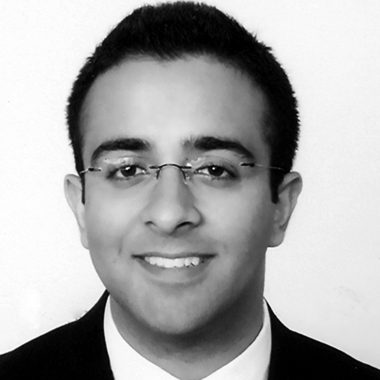
Om L. Lala
Susan Blumenthal Scholar, Harvard University
|
Dear Mrs. Reynolds, I am writing to express my immense gratitude for the opportunity to attend the 2006 International Academy of Achievement Summit in Los Angeles. Without a doubt, I will remember those four days in Los Angeles through my entire life. Your generosity was truly touching and allowed me to interact with and learn from today’s world leaders, an opportunity that is one of the highest privileges one could expect. I would like to note that Admiral Susan Blumenthal first introduced me to the possibility of attending the Summit and it is through her tireless mentorship that I was able to attend. She promised me that the Summit would be a tremendous experience, and with your generosity, it in fact exceeded my greatest expectations. One of the greatest and most personal aspects of the Summit for me was the interaction I had with my fellow delegates. My roommate, Kent Benedictis, a most recent graduate of West Point and a first lieutenant, was unlike most of the people I usually interact with at Harvard. I had always had certain pre-conceived notions about military education, but after getting to know Kent, many of my stereotypes fell apart and I ended up learning a lot about myself and gaining a good friend in the process. Other delegates I interacted with included numerous fellow students from Harvard University, including Ph.D. candidates, Kennedy School students, and law, business and medical school students. It was stimulating to interact with my peers at the Summit, and not only because we were able to discuss the broader questions regarding leadership and social justice in a comfortable and stress-free environment. I felt that my conversations with international students gave me a less U.S.-centric view of politics and world issues, which was also invaluable. Many of the relationships I began at the Summit have already jump-started my next year in England, where I will be a Harvard Scholar at Cambridge University. Of course, the greatest impact was made by my interactions with the world visionaries and leaders brought together by the Academy. There were a few personal experiences that were especially meaningful. The week before the Summit, I had written an academic paper on the upcoming U.S.-India nuclear deal, and quoted Mohamed ElBaradei when making my argument. It was truly exhilarating not only to learn from Mr. ElBaradei in a very personal conversation, but also to tell him my own ideas and enter into an engaged dialogue with him. We discussed an upcoming editorial that he was working on and sure enough, that very editorial made headlines the week after the Summit. |
Similarly, right before the Summit, I had published my senior thesis on co-regulation of alternative and modern medicine systems, but had not yet received any feedback from the medical community, let alone the alternative medicine community. I was truly overjoyed to have a half-hour conversation with Dr. Andrew Weil himself and get his feedback on some of my findings. These more intimate conversations were paralleled by being able to ask a Pulitzer Prize winner how to get over writer’s block, talking to Ralph Nader about divisive politics and reinstating the draft, and listening to Sheryl Crow live while dancing one-on-one with President Vaira Vike-Freiberga of Latvia (!). Having the opportunity to personally express my admiration to Dame Julie Andrews, Samuel Jackson, and Sally Field was also an experience I will not soon forget.
There were two other topic areas that I was especially interested in discussing at the Summit — foreign policy on terrorism and political divisions in the U.S. Both of these were addressed in an extremely engaging manner, by the very people who will provide world leadership on these issues. The panel on terrorism with John Negroponte, Ehud Barak, Mohamed ElBaradei, General Joseph Ralston, and others was, for me, one of the most rare and constructive conversations at the entire Summit. Most enlightening in my opinion were the comments of President Bill Clinton, who analyzed the current red-blue divisions in the U.S. as if he were discussing the problem with his inner circle.
The panel on politics and the Democratic Party with Nancy Pelosi, Tom Daschle, Fabian Núñez and Norman Mineta furthered my grasp over divisive politics in America in a manner that went well beyond the second-hand presentations of newspapers.
Looking at the entirety of the Summit’s impact on me, the one message I came away with was best brought out by the words of Congressman Edward Markey and Archbishop Desmond Tutu. Congressman Markey said to all of us, “In this room is one half of one half of one half of one percent of the most privileged people on the planet and in all time.” This sentence truly brought home the idea that with great achievement, learning, privilege and opportunity, comes immense responsibility to better the lot of the least fortunate and across all of humanity. We often hear this idea, but in an environment filled with today’s leaders and students, it took on a personal and real form for me. Of course, this “responsibility” can seem to be a heavy and daunting load. Desmond Tutu helped us realize that this responsibility itself was not really a burden or an inconvenience, but a source of happiness, a source of freedom from the mundane and fleeting, urging us to “Fly eagle! Fly!” The combination of these two points constitutes the main message I have taken away from the Achievement Summit — that with great privilege comes a great responsibility to serve humanity, and yet this responsibility is not a burdensome obligation, but rather a driving purpose that can make life truly meaningful.
|
I never imagined that when Admiral Blumenthal gave me the honor of a nomination almost a year ago, that this event would be so incredibly meaningful to me. I thank you again for this incredible experience and your immense generosity. Sincerely, Om L. Lala |
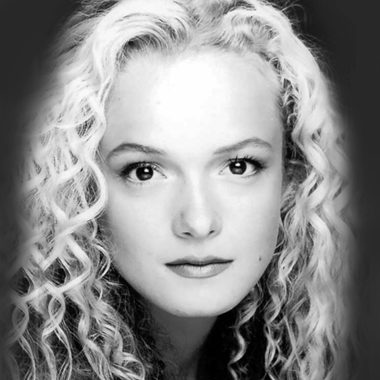
Cristina Bejan
Rhodes Scholar, Wadham College, Oxford University
|
Dear Mrs. Reynolds, First may I please apologize for this letter being long overdue. After an incredible weekend in Los Angeles I returned to England to take my final exam for my Masters at Oxford and to work on the UK premiere of Brian Friel’s play Performances, directed by Lou Stein and starring Henry Goodman and Rosamund Pike. The show opened in London last night and now I have the chance to write you at last. Thank you for what was indeed an inspirational and life-altering summit. There were so many elements that affected me, so many speakers who deeply moved me and so many fascinating individuals to talk to of both the student and adult participants. So, rather than discuss the stimulating weekend in general, please allow me to elaborate on some of the moments that impacted me in particular. As a first-generation American of Eastern-European origin (Romanian), I really appreciated the speech given by the President of Latvia, Vaira Vike-Freiberga. I frequently wonder what my and my family’s responsibility to Romania should or could be since my father left for the USA in 1969. President Vike-Freiberga has an amazing story. Her success as an academic in Canada, followed by her political triumph in Latvia, made me reconsider the problem of “brain drain” in Eastern Europe. We émigrés can return and give back to the post-communist states. We, as President Vike-Freiberga has done, are all capable of what Milan Kundera calls “The Great Return.” In fact, I just found out three days ago that my father has been granted Romanian citizenship, despite defecting and thus being an enemy of the state until 1989. I was so delighted we heard from Julie Taymor. I have been a great admirer of hers for a long time, as I am also a theater artist. She is a particular inspiration to me in that she has succeeded in doing it all and defying the labels of the industry. A director and designer with many other creative roles, Taymor has created art that speaks across national, age, socio-economic and ethnic divides. I was so touched when I had the opportunity to speak to her the evening of the gala. She told me, “Don’t let them box you in, be the artist you want to be.” These words will provide me much comfort as I enter this industry in which I, like Taymor, also want to be it all: director, playwright, performer and designer, as well as have an international voice and influence. |
Other members of the Academy I greatly enjoyed meeting and talking with include Chris Columbus, Peter Jackson, Kathleen Matthews, Ben Carson and Kareem Abdul-Jabbar. It was such a treat to sit next to Mr. Abdul-Jabbar at dinner in Fox Studios and to ask his advice on behalf of my younger brother, William, who dreams of becoming a professional athlete. That same evening I could hardly believe my eyes when Trisha Yearwood came out onstage. Having grown up in North Carolina, I am quite the country music fan and what an incredible surprise and honor to hear her perform live!
Naturally, in addition to the Academy members, I learned so much from my fellow student delegates over the course of the weekend. From discussion of human rights violations involving FGM with a delegate from Cairo, to hearing from a Cuban delegate how he came to the USA on a raft at age 16, I gained first-hand exposure to what had previously been mythic tales of people in faraway places. I also feel so lucky to have had two wonderful women as my roommates: a UVA Law School student, and a former Peace Corps volunteer in China and Harvard graduate student. It was truly special to meet such passionate young people with such wide-ranging interests who live lives which are already so impressive.
Thank you for bringing all of us together for a stimulating and inspirational summit. What you have created is a once-in-a-lifetime opportunity and I feel honored that I have been able to participate. The wise words, the stories, and the contacts from the weekend in Los Angeles will remain with me as I hope to make my own cultural and humanitarian contribution.
Best wishes from England.
Yours,
Cristina Bejan
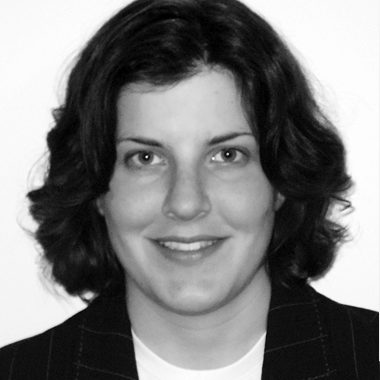
Marcia Reinhart
Rhodes Scholar, Wadham College, Oxford University
|
Dear Mrs. Reynolds, It is difficult to believe that the Academy of Achievement Summit took place nearly one month ago. Since returning to Oxford, I have spent many hours recounting my experience to friends and family and their reactions have only intensified how truly honored and privileged I feel to have been a part of such an extraordinary event. I would like to express my heartfelt thanks to both yourself and your organization for allowing me to attend. I would have to say that the most memorable part of the Summit was the quality of the program, although watching Robin Williams rapping along to Sheryl Crow was probably a close second! Seriously though, as a neuroscience researcher I was pleasantly surprised when the conference began with my favorite subject, medical science (particularly as the bulk of the presenters were neurosurgeons and neuroscientists). While these particular presentations catered to my own interests, I also felt that they were presented at a level easily understood by a broader audience as well, stimulating the curiosity of future politicians, lawyers and artists alike. This global appeal is something that science presentations often lack, and I must say that I found the talks we received to be a refreshing change.
This was made possible by the excellent selection of panelists, all of whom commanded the audience’s respect with both their past and present accomplishments along with various intelligent arguments supporting their side of the issue. I have heard Dr. Dawkins speak before in Oxford on subjects entirely unrelated to his personal opinion of religion, and while he presented a very provocative persona throughout the conference, I have much respect for his cunning intelligence as a scientist, regardless of the topic he is lecturing on. In fact, I had the pleasure of sitting with Dr. Dawkins and his wife during our lunch outing to Spago, which allowed the three of us to trade some Oxford tales. |
|
I also thoroughly enjoyed the talk given by Bill Clinton. This was the first time I had heard Mr. Clinton speak in person, and I felt that, given the level of the audience he was speaking to and the lack of press, he was able to provide many candid opinions regarding current events and international relations. In a world where politicians are famous for never answering the question they are asked, it was again refreshing to see Mr. Clinton provide direct, intelligent answers to the many issues that arose during his question-and-answer session. And this was only the first morning… On the whole, the variety presented during this Summit made for a fantastic learning experience. We were exposed to such a vast repertoire of speakers, from political heads of state, to artists, musicians and filmmakers, and of course the once-in-a-lifetime opportunity to hear the inspiration of Desmond Tutu. In addition to the speakers and panel discussions, I thoroughly enjoyed the musical concert at the 20th Century Fox studios, which managed to span such a broad range of genres without losing any momentum. And of course the setting of the Summit was amazing. I must say that I returned home to my small student flat in Oxford feeling utterly spoiled. In closing, I would simply like to say thank-you one final time. This was a fantastic opportunity and I feel I gained so much from the entire experience. I can only hope that the Academy of Achievement’s annual Summit will continue well into the future so that many other students can become as fortunate as I have been to attend. Yours very truly, Marcia Reinhart |
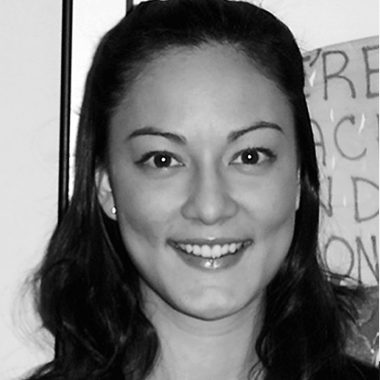
Kristine Schenck
Edmund A. Walsh School of Foreign Service, Georgetown University
|
Dear Mrs. Reynolds, Four months have passed since the 45th Academy of Achievement International Summit and I am still regaling family and friends about my amazing experience and thinking about how the honorees and delegates inspired me. Thank you for sending me to Los Angeles to hear from some of the world’s greatest achievers. The experience exceeded all my expectations. When I received an invitation to attend the summit as a student delegate, classmates who had attended last year congratulated me and gushed about the incredible opportunity. I thanked them, but privately doubted that the event would blow me away. Attending school in Washington DC I have had numerous opportunities to hear important people speak. I guess I was jaded. I quickly found however, that my classmates were right. I underestimated the power of the event. The first thing I noticed when checking into the Regent Beverly Wilshire was the sheer energy and excitement around me. Among my 300 fellow students were people whose biographies contained many accomplishments at such a young age, I felt almost intimidated to approach them. When the sessions began, I realized something that I had failed to acknowledge prior to the event: all the speakers, the achievers, were there to talk with us, the students. This is, of course, the point of the event, but for some reason I thought that l would simply be a passive observer of a dialogue among the honorees and delegates. Once the event began, it dawned on me that these people were not there simply to socialize among themselves, or brag about their accomplishments. They were there to talk to us about our futures, inspire our work, and show us that we too can make an impact. It is difficult to adequately describe the experience in full. It was both utterly surreal and thoroughly inspiring. If the goal was to give us four days that we would not forget and to inspire us to reach for the highest goals, then the summit succeeded smashingly. |
|
What will I remember most? That’s easy. It was the moment when Robin Williams jumped on stage during the Banquet of the Golden Plate and burst into a spontaneous rap about the summit, while Sheryl Crow played her guitar. Archbishop Desmond Tutu ran to the front of the room and boogied on the dance floor. Before long, everyone was laughing and dancing, including John Negroponte, who was bouncing along with the tunes. Everywhere I looked, I could see the world’s most accomplished leaders, along with graduate students in their fanciest attire, enjoying the evening — chatting, laughing, and dancing together. Thank you for a wonderful time. It was truly an event to remember and an experience that will continue to inspire me. When I met Jack Horner, world-renowned paleontologist, at dinner in the 20th Century Fox Studio, he asked me “What will you do in the future to be invited back to the Academy of Achievement as an inductee?” I now have another mission in life. Respectfully, Kristine Schenck |
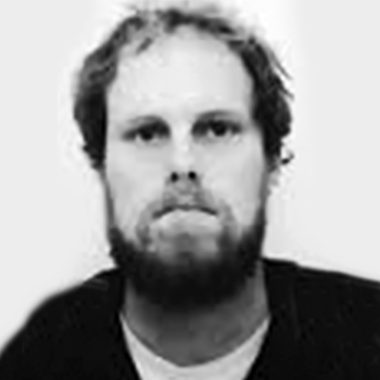
Captain Robert M. Chamberlain, USA
Dear Mrs. Reynolds,
It probably seems a little odd to be sending a thank you note a year and a half after I attended the Academy of Achievement in Los Angeles. After all, thinking back to the sample letters that we got, one woman apparently had hers written before she got off the plane. But I think there is a compelling reason for my tardiness, and one that fills me with joy as I sit here at my computer, getting ready to celebrate my second Thanksgiving in Iraq: the Academy of Achievement isn’t about celebrities and unbelievable stories. It’s about connection, and about changing the lives of its participants for the better.
Of course, that’s not to say that the things I witnessed there were not absolutely surreal. I got to sit down and eat a salad with Wesley Clark and talk about Iraq. I got a book recommendation from Ralph Nader (War is a Racket), which is sitting on the shelves of the shipping container I call home.
I got to sit in stunned amazement as Desmond Tutu danced on stage while Robin Williams free-styled and Sheryl Crow strummed her guitar.
These are stories I still tell, and, had I not actually been there, I wouldn’t have believed them to be possible.
However, I think there is more to these stories than the stories. Which is to say, one way of looking at the Academy of Achievement is like a crazy dream, where for three days deserving students are whisked away into a land of fame, accomplishment, Spago, and the Beverly Wilshire. But that sells it short, and misconstrues the lessons about “greatness” that I think the Academy teaches. Namely, that great people are not a different species, but rather that we all carry the seeds of greatness within us, which is to say, the Academy helps me believe in my own potential for greatness, which, for a middle class kid from Kansas, is a precious gift indeed.
To be totally honest, I could probably have told you all that 18 months ago. The reason I waited so long is that perhaps the greatest story I have from the Academy of Achievement is one of the most basic tales of humanity: I met a girl. Except, this girl, Sarah Stillman isn’t like anybody else. She’s brilliant, and kind, and funny. She thinks and feels deeply, she writes incredibly, and she’s supportive and challenging, and — well, I suppose all deep human connections are both completely unique and, when put into words, nearly indistinguishable. But I remember where we were introduced, at the mixer on the first night in the Beverly Wilshire, and how we talked sitting on a table for a long time. I remember sitting in the back row of the first day’s panel with an empty chair beside me, and then her appearance in the chair, followed by a day of passing notes and sharing commentary and ideas on the speakers. I remember having such an incredible time with each other that, when we went to Spago we had to both commit to hanging out with other people, so we didn’t just spend the whole weekend engaged with one another. And I remember, after lunch, agreeing that we both preferred each other’s company to the company of others! I remember drinking champagne and dancing in the bar of the hotel, and giving her my email address as we parted, really hoping that, like the Academy itself, this was all more than just a dream, and that it would carry through into my real life.
And it did, in the way these things do. After I tracked down her e-mail, we shared our Master’s theses, followed eventually by instant messaging, and then my rushing home to plug in my phone and call her for the first time. Those calls continued across the Atlantic, and we met in San Francisco and drove up to Orcas Island, and from there to a relationship that has existed in Lawton, Oklahoma; Oxford, England; Malaga, Spain; Kansas; Washington, D.C.; Iraq; and Australia. We talk every day, about everything, and we marvel to one another that it all started at the Academy of Achievement, that the theory is true and the event worked, and that bringing together brilliant, ambitious, wonderful people and letting them share with one another does create connections of incredible beauty.
I haven’t wanted to mention this before now because it all seemed too good to be true — like a perfect bubble that, if touched, would pop and disappear. But at the same time, I couldn’t honestly talk about the Academy of Achievement without talking about Sarah, and so I decided it would be better to say nothing at all. But, in the spirit of the season, I now feel compelled to voice my gratitude.
I remember talking to Elisse LaMay at the hotel pool while I was waiting for the shuttle to the airport, and she and the rest of the staff were having a well-earned celebration. And I want to express my deep appreciation for all the hard work that goes into hosting such an incredible event. The execution was seamless, every detail was carefully considered, and the staff went out of their way to work with me, as a student delegate, even as they were arranging accommodations for CEOs, Princes, and Presidents. And, of course, I was awed by the generosity of spirit that drives you to create and fund such an unbelievable experience year after year. You deserve more thanks than a single letter can contain, but I hope this can bring a smile to your face for just a moment, because your creation has certainly brought a deep and lasting joy to my life.
I will leave Iraq in only five and a half months. It’s rainy now in Tal Afar, and getting cold. But soon enough the weather will turn, the clouds will clear, and I will step from the heat of Iraq into the warm May sunshine of Ft. Riley, Kansas. Standing there, amongst the families, flags, and signs, will be my parents, Sarah, and a love and comfort of indescribable goodness – and, within that, the Academy of Achievement. And for that, I am thankful.
Sincerely,
Captain Robert M. Chamberlain, USA
